Here are my favorite poems about brotherhood categorized:
- Short poems about brotherhood
- Poems about brothers
- Poems about sibling love
- Poems about friendship and brotherhood
- Inspiring brotherhood poems
So if you want the best poems about brotherhood, then you’re in the right place.
Let’s jump right in!
- 31 Harmonious Poems About Twins
- 71 Comforting Poems About Home
- 167 Wonder-Filled Famous Poems for Kids
- 61 Compelling Poems About Aunts
- 65 Genuine Love Poems For Husbands
- 51 Amorous Love Poems For Wives

Sincere Poems About Brotherhood
Submerge yourself in a collection of the most heartwarming poems about brotherhood, thoughtfully assembled for your literary journey.
Whether you’re in search of works that delve into the profound bond and shared experiences of brothers, or reflect on the irreplaceable camaraderie that this relationship embodies, our collection presents a plethora of touching examples.
With our conscientiously curated selection, you have the best poems about brotherhood right at your disposal.
So, make a pause to explore and cherish the beauty and depth of these bonds that have inspired poets over the centuries!
Let’s embark on this fraternal poetic adventure!
My #1 Favorite Poem About Brotherhood
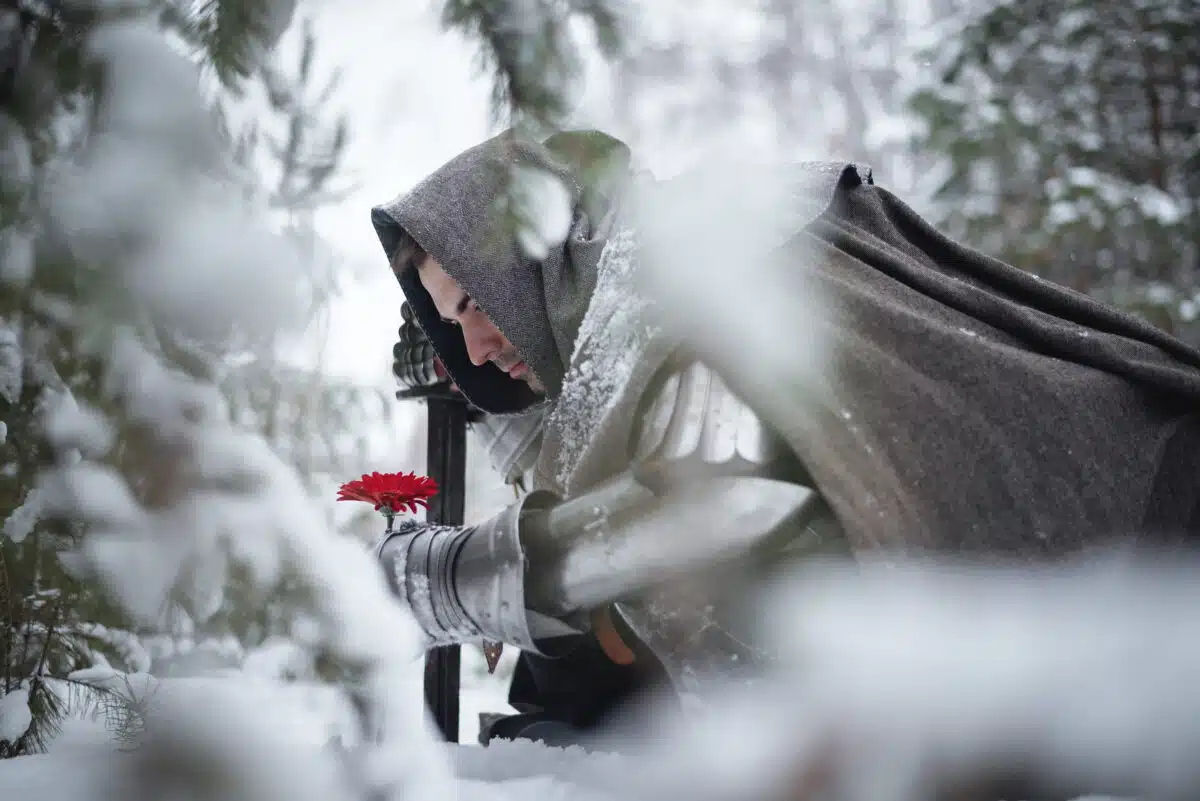
“Brotherhood” by Joseph Horatio Chant
Is brotherhood to flesh confined?
Is there no kinship of the soul?
To have it thus, I am resigned,
If ’tis my God-appointed goal;
For there are those whom I hold dear,
Who claim with me a common sire,
That we, with one accord, revere,
And love holds out midst flood and fire.
But is the family so small
Of which I fondly claim a part?
Is there no other I may call
A brother, and within my heart
Cherish for him, whate’er his name,
Or rank, or color, or his creed,
A love of pure and changeless flame,
And feel I render but his meed?
Thank God for brotherhood so broad
That all the human race may share
A kinship, never yet outlawed,
Tho’ types of it have been too rare.
But bigotry is doomed to die,
And hate, a relic of the past;
The golden age is drawing nigh,
And all one family at last!
Short Poems About Brotherhood
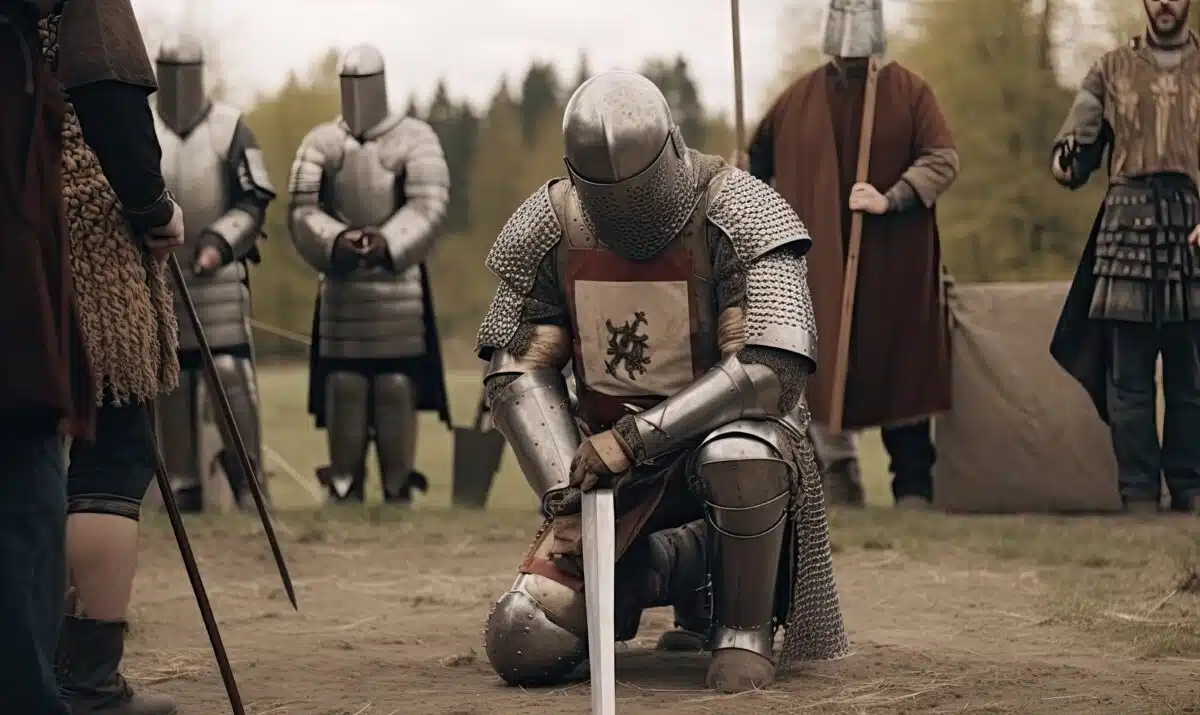
“To My Brother” by Siegfried Sassoon
Give me your hand, my brother, search my face;
Look in these eyes lest I should think of shame;
For we have made an end of all things base.
We are returning by the road we came.
Your lot is with the ghosts of soldiers dead,
And I am in the field where men must fight.
But in the gloom I see your laurell’d head
And through your victory I shall win the light.
“International Brotherhood” by Elizabeth H. Connor
Yes, an international brotherhood,
Of peace, justice, freedom for all,
Where love reigns supreme in ev’ry man’s heart,
Then the dogs of warfare must fall,
When men of all nations, races and creeds,
Remember the old golden rule,
Then friendships will strengthen, hate will decay,
God speed the good doctrine and school.
“Sonnet XXXI” by George Santayana
A brother’s love, but that I chose thee out
From all the world, not by the chance of birth,
But in the risen splendour of thy worth,
Which, like the sun, put all my stars to rout.
A lover’s love, but that it bred no doubt
Of love returned, no heats of flood and dearth,
But, asking nothing, found in all the earth
The consolation of a heart devout.
A votary’s love, though with no pale and wild
Imaginations did I stretch the might
Of a sweet friendship and a mortal light.
Thus in my love all loves are reconciled
That purest be, and in my prayer the right
Of brother, lover, friend, and eremite.
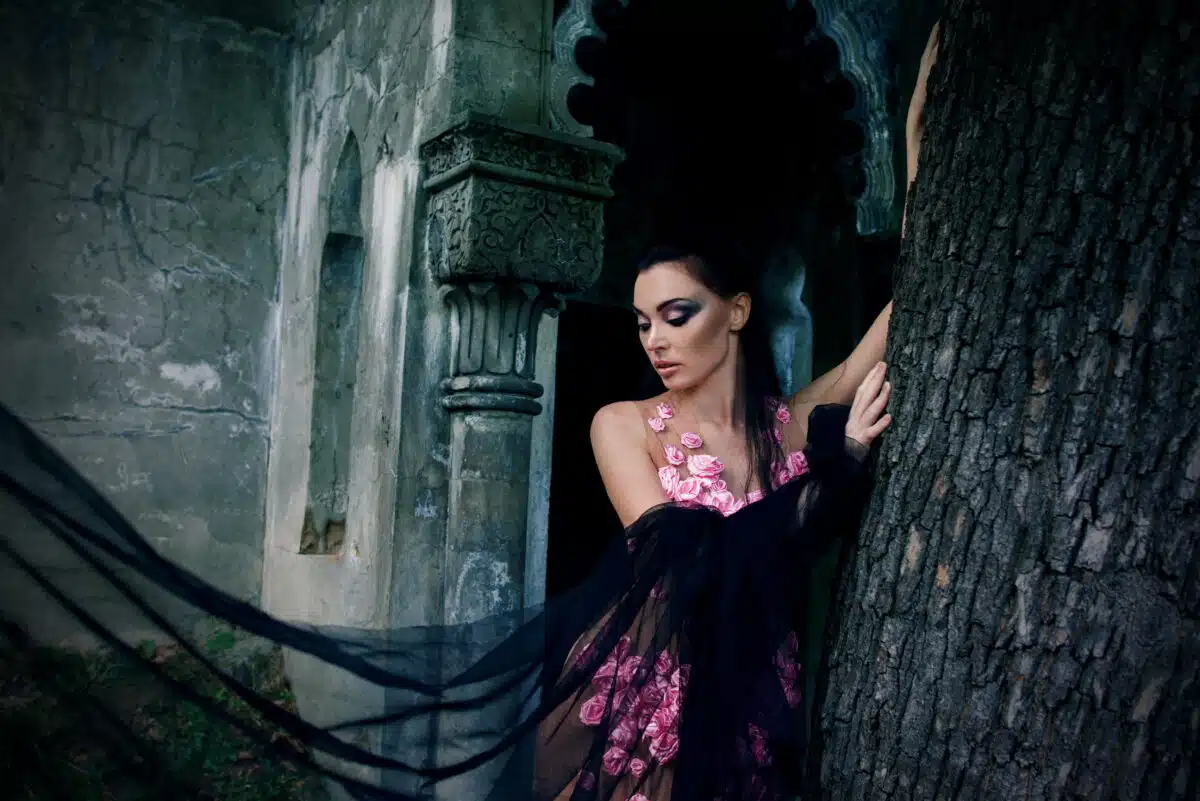
“A Brother’s Grave” by Gaius Valerius Catullus (James Cranstoun, Translator)
Brother! o’er many lands and oceans borne,
I reach thy grave, death’s last sad rite to pay;
To call thy silent dust in vain, and mourn,
Since ruthless fate has hurried thee away:
Woe’s me! yet now upon thy tomb I lay—
All soaked with tears for thee, thee loved so well—
What gifts our fathers gave the honored clay
Of valued friends; take them, my grief they tell:
And now, forever hail! forever fare thee well!
“Boys Will Be Boys” by Charlotte Perkins Gilman
“Boys will be boys,” and boys have had their day;
Boy-mischief and boy-carelessness and noise
Extenuated all, allowed, excused and smoothed away,
Each duty missed, each damaging wild act,
By this meek statement of unquestioned fact–
Boys will be boys!
Now, “women will be women.” Mark the change;
Calm motherhood in place of boisterous youth;
No warfare now; to manage and arrange,
To nurture with wise care, is woman’s way,
In peace and fruitful industry her sway,
In love and truth.
“To My Brothers” by John Keats
Small, busy flames play through the fresh laid coals,
And their faint cracklings o’er our silence creep
Like whispers of the household gods that keep
A gentle empire o’er fraternal souls.
And while, for rhymes, I search around the poles,
Your eyes are fix’d, as in poetic sleep,
Upon the lore so voluble and deep,
That aye at fall of night our care condoles.
This is your birth-day Tom, and I rejoice
That thus it passes smoothly, quietly.
Many such eves of gently whisp’ring noise
May we together pass, and calmly try
What are this world’s true joys,—ere the great voice,
From its fair face, shall bid our spirits fly.
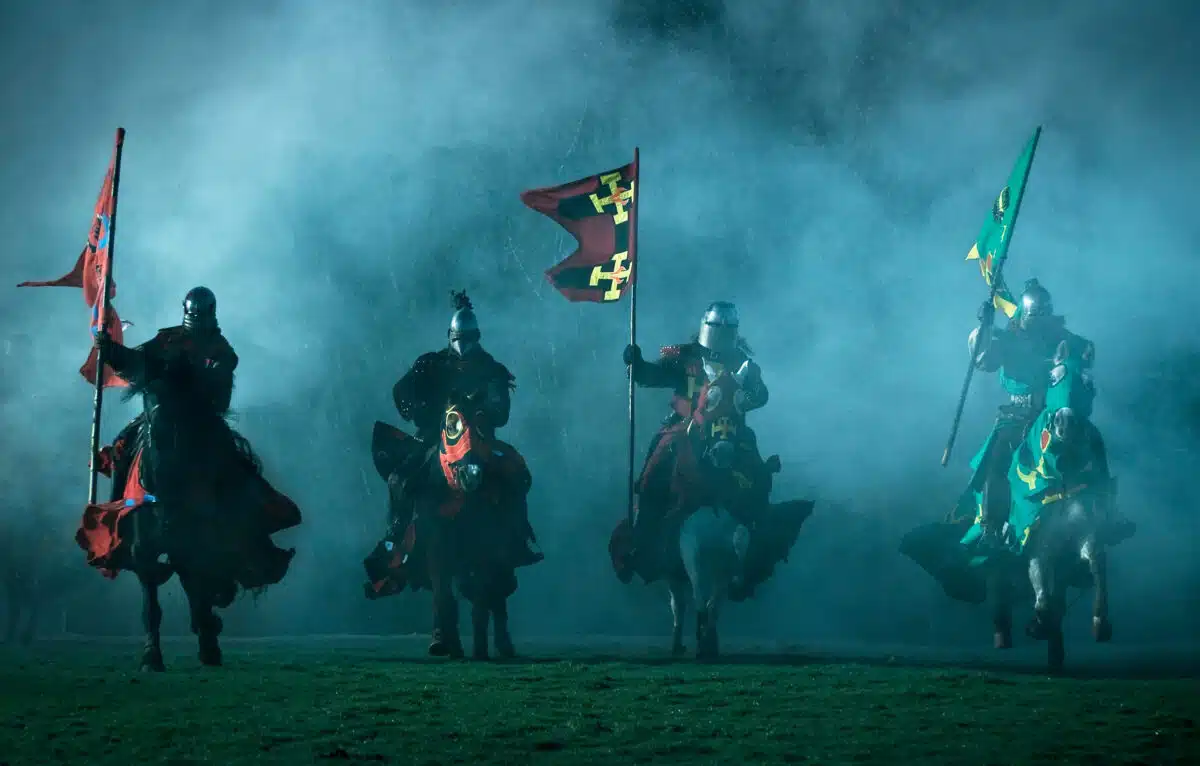
“Fraternity” by John Banister Tabb
I know not but in every leaf
That sprang to life along with me,
Were written all the joy and grief
Thenceforth my fate to be.
The wind that whispered to the earth,
The bird that sang its earliest lay,
The flower that blossomed at my birth—
My kinsmen all were they.
Ay, but for fellowship with these
I had not been-nay, might not be;
Nor they but vagrant melodies
Till harmonized by me.
Poems About Brothers

“The Two Brothers” by Heinrich Heine (Edgar Alfred Bowring, Translator)
On the mountain summit darkling
Lies the castle, veil’d in night;
Lights are in the valley sparkling,
Clashing swords are gleaming bright.
Brothers ’tis, who in fierce duel
Fight, with wrath to fury fann’d;
Tell me why these brothers cruel
Strive thus madly, sword in hand?
By the eyes of Countess Laura
Were they thus in strife array’d;
Both with glowing love adore her,—
Her, the noble, beauteous maid.
Unto which now of the brothers
Is her heart the most inclined?
She her secret feelings smothers,—
Out, then, sword, the truth to find!
And they fight with rage despairing,
Blows exchange with savage might;
Take good heed, ye gallants daring,—
Mischief walks abroad by night.
Woe, O woe, ye brothers cruel!
Woe, O woe, thou vale abhorr’d!
Both fall victims in the duel,
Falling on each other’s sword.
Races are to dust converted,
Many centuries have flown,
And the castle, now deserted,
Sadly from the mount looks down.
But at night-time in the valley
Wondrous forms appear again;
At the stroke of twelve, forth sally
To the fight the brothers twain.
“Brothers” by Gerard Manley Hopkins
How lovely the elder brother’s
Life all laced in the other’s,
Lóve-laced!—what once I well
Witnessed; so fortune fell.
When Shrovetide, two years gone,
Our boys’ plays brought on
Part was picked for John,
Young Jóhn: then fear, then joy
Ran revel in the elder boy.
Their night was come now; all
Our company thronged the hall;
Henry, by the wall,
Beckoned me beside him:
I came where called, and eyed him
By meanwhiles; making my play
Turn most on tender byplay.
For, wrung all on love’s rack,
My lad, and lost in Jack,
Smiled, blushed, and bit his lip;
Or drove, with a diver’s dip,
Clutched hands down through clasped knees—
Truth’s tokens tricks like these,
Old telltales, with what stress
He hung on the imp’s success.
Now the other was bráss-bóld:
Hé had no work to hold
His heart up at the strain;
Nay, roguish ran the vein.
Two tedious acts were past;
Jack’s call and cue at last;
When Henry, heart-forsook,
Dropped eyes and dared not look.
Eh, how áll rúng!
Young dog, he did give tongue!
But Harry—in his hands he has flung
His tear-tricked cheeks of flame
For fond love and for shame.
Ah Nature, framed in fault,
There ’s comfort then, there ’s salt;
Nature, bad, base, and blind,
Dearly thou canst be kind;
There dearly thén, deárly,
I’ll cry thou canst be kind.
“Forgotten” by Emily Dickinson
There is a word
Which bears a sword
Can pierce an armed man.
It hurls its barbed syllables,—
At once is mute again.
But where it fell
The saved will tell
On patriotic day,
Some epauletted brother
Gave his breath away.
Wherever runs the breathless sun,
Wherever roams the day,
There is its noiseless onset,
There is its victory!
Behold the keenest marksman!
The most accomplished shot!
Time’s sublimest target
Is a soul ‘forgot’!
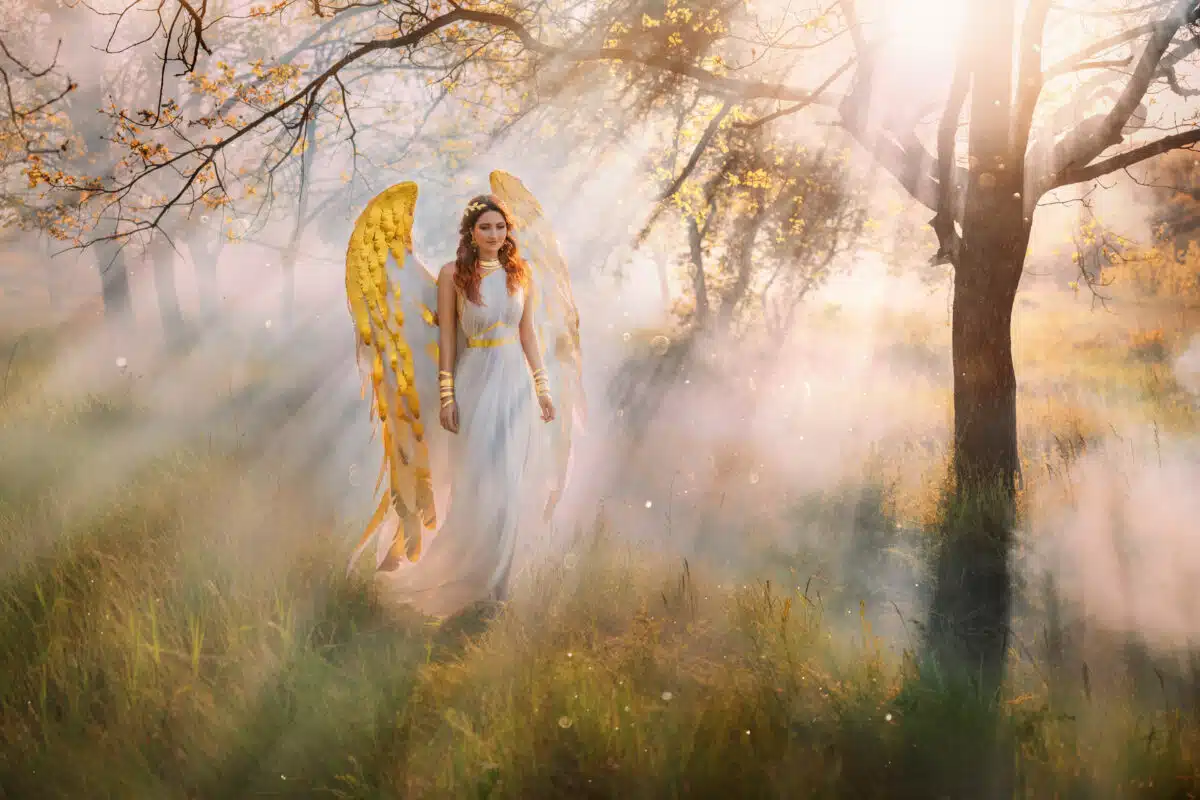
“Love Is The Fulfillment” by Elizabeth H. Connor
Love is the fulfillment for God is love,
From Him all blessings flow,
Peace, truth and righteousness comes from above,
Deep in our hearts they grow;
The world is progressing, aye, slow but sure,
Time’s ever on the wing;
A new day is dawning, born to endure,
Love, truth and peace will bring.
Love ruleth ever and all men will be,
Of one vast brotherhood,
Kingdoms are tot’ring far over the sea,
Yes, crumbling as they should,
God will be apparent the God of love,
All will know He is King,
The rule of right like the carrier dove
A message sweet will bring.
“The Wise Brothers” by Edwin Arlington Robinson
FIRST VOICE
So long adrift, so fast aground,
What foam and ruin have we found—
We, the Wise Brothers?
Could heaven and earth be framed amiss,
That we should land in fine like this—
We, and no others?
SECOND VOICE
Convoyed by what accursèd thing
Made we this evil reckoning—
We, the Wise Brothers?
And if the failure be complete,
Why look we forward from defeat—
We, and what others?
THIRD VOICE
Blown far from harbors once in sight,
May we not, going far, go right,—
We, the Wise Brothers?
Companioned by the whirling spheres,
Have we no more than what appears—
We, and all others?
“Gitanjali 77” by Rabindranath Tagore
I know thee as my God and stand
apart––I do not know thee as my own
and come closer. I know thee as my
father and bow before thy feet––I do
not grasp thy hand as my friend’s.
I stand not where thou comest down
and ownest thyself as mine, there to
clasp thee to my heart and take thee as
my comrade.
Thou art the Brother amongst my
brothers, but I heed them not, I divide
not my earnings with them, thus shar-
ing my all with thee.
In pleasure and in pain I stand not
by the side of men, and thus stand
by thee. I shrink to give up my
life, and thus do not plunge into the
great waters of life.

“Children of the Sun” by Fenton Johnson
We are children of the sun,
Rising sun!
Weaving Southern destiny,
Waiting for the mighty hour
When our Shiloh shall appear
With the flaming sword of right,
With the steel of brotherhood,
And emboss in crimson die
Liberty! Fraternity!
We are the star-dust folk,
Striving folk!
Sorrow songs have lulled to rest;
Seething passions wrought through wrongs,
Led us where the moon rays dip
In the night of dull despair,
Showed us where the star gleams shine,
And the mystic symbols glow—
Liberty! Fraternity!
We have come through cloud and mist,
Mighty men!
Dusk has kissed our sleep-born eyes,
Reared for us a mystic throne
In the splendor of the skies,
That shall always be for us,
Children of the Nazarene,
Children who shall ever sing
Liberty! Fraternity!
“Laugh and Be Happy” by Cora C. Bass
Laugh and be happy, laugh while you may,
Laugh ‘mid the wild, rushing storms of to-day;
Breasting the current when downward it trends,
Grand is the battle if grandly it ends.
Laugh and be happy; laugh, it is best,
Sailing the wide sweeping sea of unrest;
Though the dark billows are running so high,
Courage! my brother, the haven is nigh.
Laugh and be happy, laugh while you may,
Laugh ‘mid the wild, rushing storms of to-day;
Faith, like a beacon light, woos us along,
Fill the glad moments with laughter and song.
“O Brother Tree” by Max Michelson
O brother tree! O brother tree!
Tell to me, thy brother,
The secret of thy life,
The wonder of thy being.
My brother tree, my brother tree,
My heart is open to thee—
Reveal me all thy secrets.
Beloved tree, beloved tree,
I have shattered all my pride.
I love thee, brother, as myself.
Oh, explain to me thy wonders.
Beloved one, adored one,
I will not babble of it among fools—
I will tell it only to the unspoiled:
Reveal to me thy being.
I have watched thy leaves in sunshine,
I have heard them in the storm.
My heart drank a droplet of thy holy joy and wonder,
One drop from the ocean of thy wonder.
I am thy humble brother—I am thine own.
Reveal thy life to me,
Reveal thy calm joy to me,
Reveal to me thy serene knowledge.
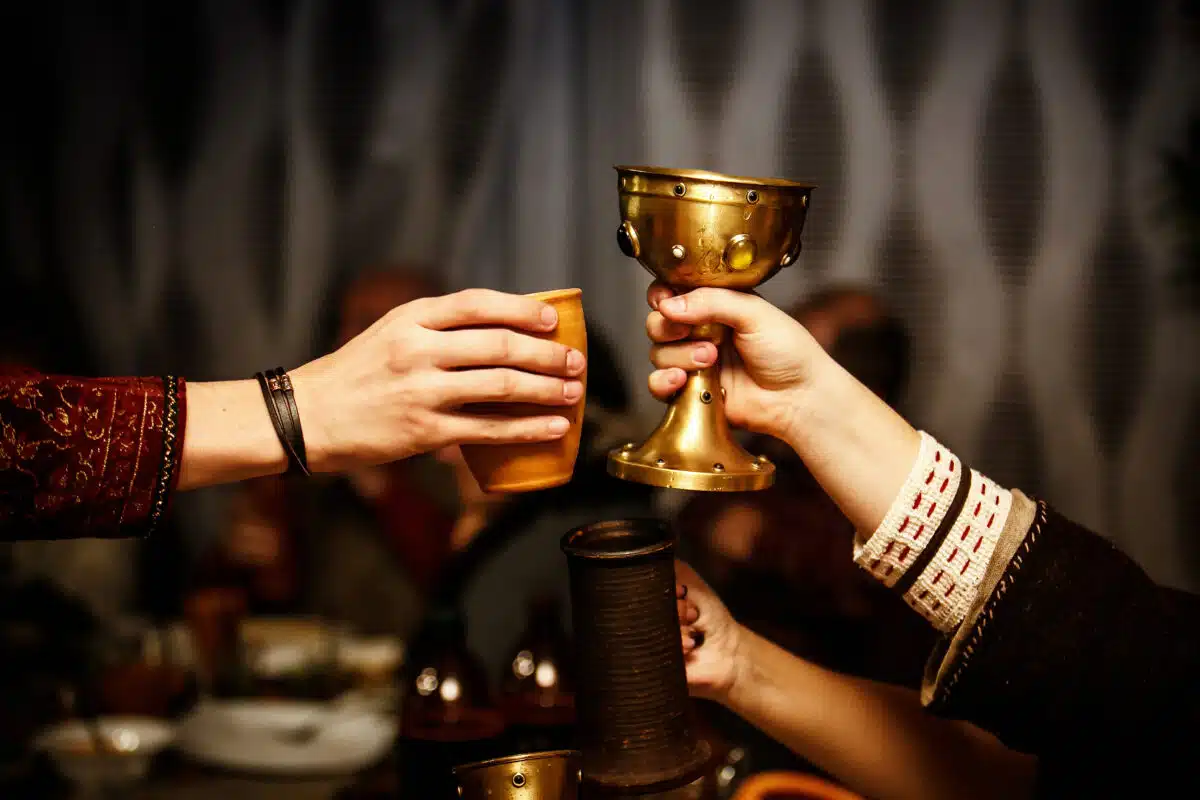
“Comrades” by Bliss Carman (William)
Comrades, pour the wine to-night
For the parting is with dawn!
Oh, the clink of cups together,
With the daylight coming on!
Greet the morn
With a double horn,
When strong men drink together!
Comrades, gird your swords to-night,
For the battle is with dawn!
Oh, the clash of shields together,
With the triumph coming on!
Greet the foe,
And lay him low,
When strong men fight together!
Comrades, watch the tides to-night,
For the sailing is with dawn!
Oh, to face the spray together,
With the tempest coming on!
Greet the sea
With a shout of glee,
When strong men roam together!
Comrades, give a cheer to-night,
For the dying is with dawn!
Oh, to meet the stars together,
With the silence coming on!
Greet the end
As a friend a friend,
When strong men die together!
“The True Friend” by Richard Chenevix Trench
He is a friend who, treated as a foe,
Now even more friendly than before doth show:
Who to his brother still remains a shield,
Although a sword for him his brother wield;
Who of the very stones against him cast,
Builds friendship’s altar higher and more fast.
“Brother, You’ll Take My Hand” by Henry Lawson
Not to the sober and staid,
Leading a quiet life,
But to men whose paths are laid
Ever through storm and strife,
Here is a song from me,
Sent to the tragic West,
Message of sympathy
To the hearts that can never rest.
This is the song I send
Out to the Western land,
Sinner, and martyr, and friend,
Brother! you’ll take my hand.
To you who have loved and lost;
To you whose souls have died
Cursing a fair false face
And the red warm lips that lied;
Loved with a boyish love,
With a love that was pure and true,
That set one woman above
The world that was known to you;
Eating your heart out now
Alone on a waste of sand,
I have been played with too.
Brother! you’ll take my hand.
To you who were loved too well,
And who cast that love aside
When your vanity was replete
And your passion was satisfied,
Haunted now day and night;
Haunted in every place
By the eyes of a suicide,
Set in a dead girl’s face.
Crouched in your misery
Out where the stars are grand,
O I am haunted too!
Brother! you’ll take my hand.
To you who had wealth or name,
Friends, love, and a future fair,
And who sacrificed all for drink
And the nights of Leicester Square:
In by the drunken town,
Out on the barren tramp,
Pacing it up and down
Alone by the listening camp;
Crouched in your agony,
Hiding your eyes with your hand,
I had the ball at my feet,
Brother! I understand.
There is a light for all;
Hold up your head and live!
Forgive the woman who wronged,
And the dead girl will forgive.
Brood not, but work for good;
Work in the world of men,
Strong is the man who fell
And rose from the depths again.
There shall be peace for you,
Sinners, who win the land.
I would fight upward too,
Brother! you’ll take my hand.
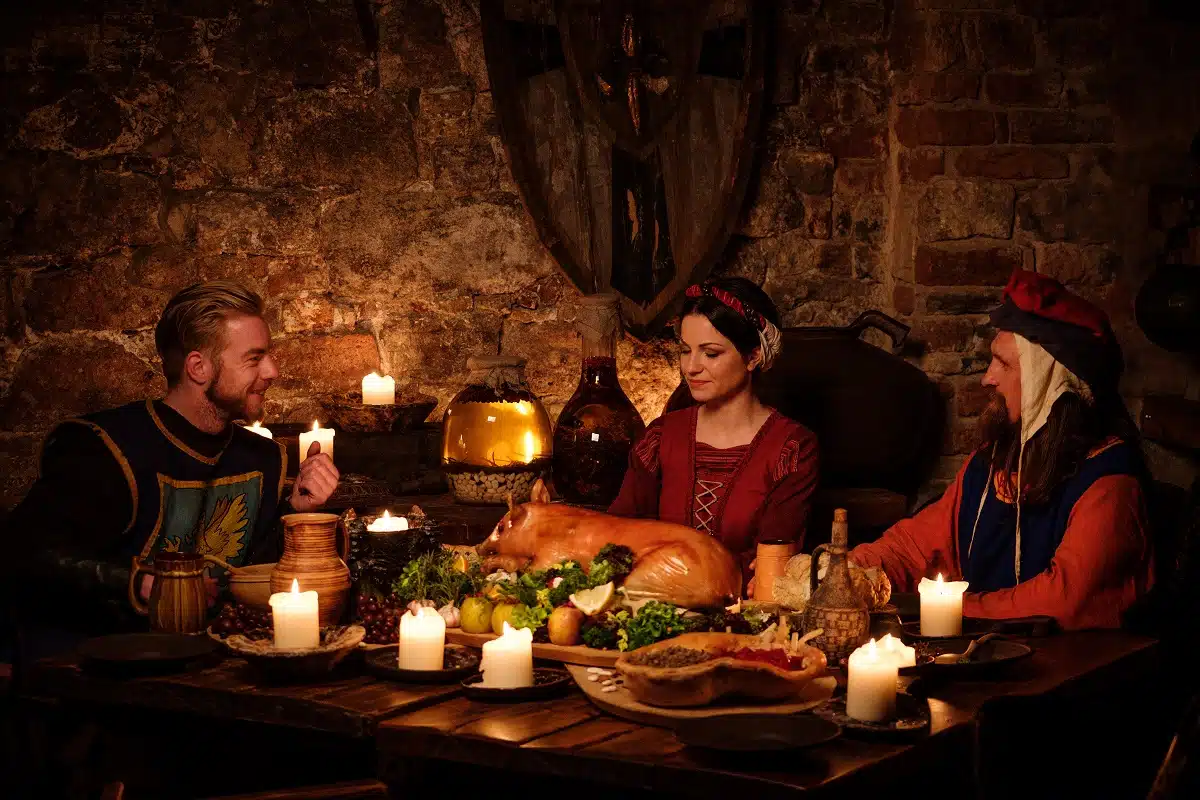
From “Bill And Joe” by Oliver Wendell Holmes
Come, dear old comrade, you and I
Will steal an hour from days gone by,
The shining days when life was new,
And all was bright with morning dew,
The lusty days of long ago,
When you were Bill and I was Joe:
Your name may flaunt a titled trail,
Proud as a cockerel’s rainbow tail;
And mine as brief appendix wear
As Tam O’Shanter’s luckless mare;
To-day, old friend, remember still
That I am Joe and you are Bill .
You’ve won the great world’s envied prize,
And grand you look in people’s eyes,
With H O N. and LL. D.
In big brave letters , fair to see, —
Your fist, old fellow ! off they go!—
How are you, Bill? How are you, Joe?
You’ve worn the judge’s ermined robe;
You’ve taught your name to half the globe;
You’ve sung mankind a deathless strain ;
You’ve made the dead past live again :
The world may call you what it will,
But you and I are Joe and Bill.
Poems About Sibling Love

“To My Brother And Sister In The Country” by Felicia Hemans
Happy soon we’ll meet again,
Free from sorrow, care, and pain;
Soon again we’ll rise with dawn,
To roam the verdant dewy lawn;
Soon the budding leaves we’ll hail,
Or wander through the well-known vale;
Or weave the smiling wreath of flowers;
And sport away the light-wing’d hours.
Soon we’ll run the agile race;
Soon, dear playmates, we’ll embrace;—
Through the wheat-field or the grove,
We’ll hand in hand delighted rove;
Or, beneath some spreading oak,
Ponder the instructive book;
Or view the ships that swiftly glide,
Floating on the peaceful tide;
Or raise again the caroll’d lay;
Or join again in mirthful play;
Or listen to the humming bees,
As their murmurs swell the breeze;
Or seek the primrose where it springs;
Or chase the fly with painted wings;
Or talk beneath the arbour’s shade;
Or mark the tender shooting blade:
Or stray beside the babbling stream,
When Luna sheds her placid beam;
Or gaze upon the glassy sea——
Happy, happy shall we be!
“Love Between Brothers and Sisters” by Isaac Watts
Whatever brawls disturb the street,
There should be peace at home;
Where sisters dwell and brothers meet,
Quarrels should never come.
Birds in their little nests agree;
And ’tis a shameful sight,
When children of one family
Fall out and chide and fight.
“Far Away” by Felicia Hemans
Far away!—my home is far away,
Where the blue sea laves a mountain-shore;
In the woods I hear my brothers play,
Midst the flowers my sister sings once more,
Far away!
Far away!—my dreams are far away,
When at midnight stars and shadows reign:
“Gentle child!” my mother seems to say,
“Follow me where home shall smile again,
Far away!”
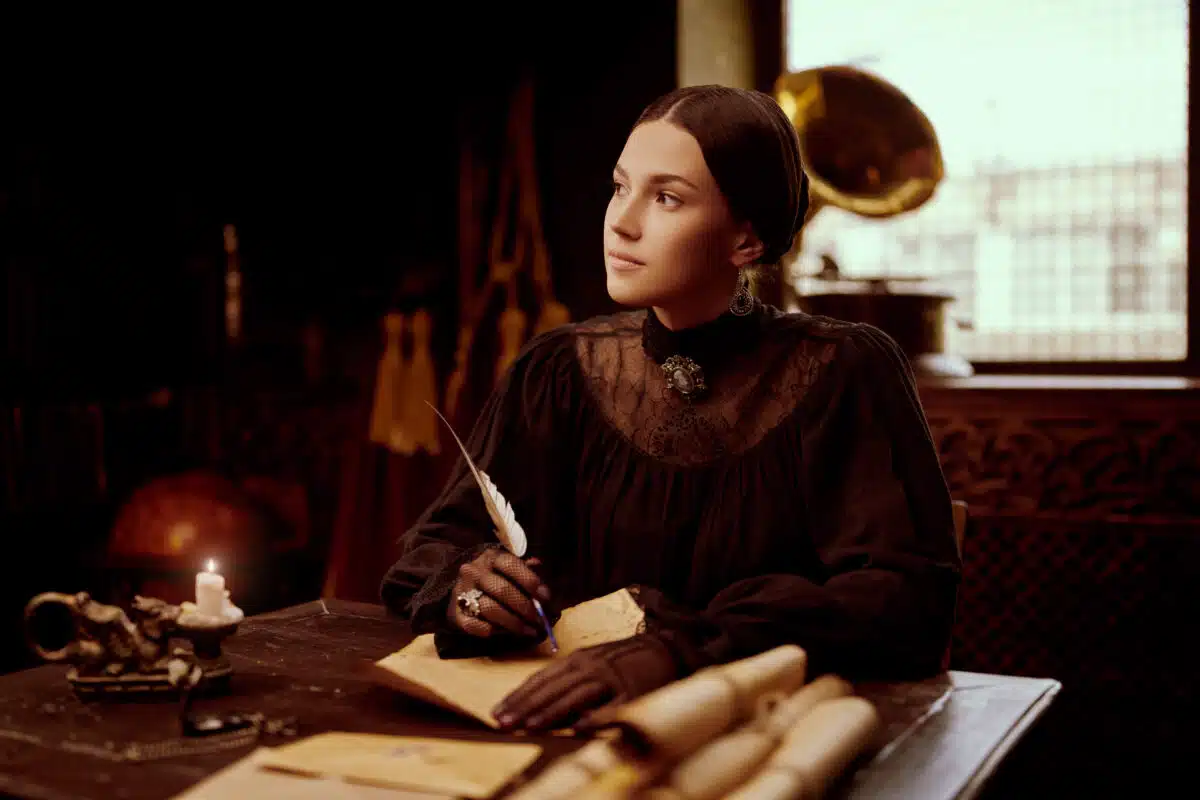
From “To My Brother George” by John Keats
Ah, my dear friend and brother,
Could I, at once, my mad ambition smother,
For tasting joys like these, sure I should be
Happier, and dearer to society.
At times, ’tis true, I’ve felt relief from pain
When some bright thought has darted through my brain:
Through all that day I’ve felt a greater pleasure
Than if I’d brought to light a hidden treasure.
As to my sonnets, though none else should heed them,
I feel delighted, still, that you should read them.
Of late, too, I have had much calm enjoyment,
Stretch’d on the grass at my best lov’d employment
Of scribbling lines for you. These things I thought
While, in my face, the freshest breeze I caught.
E’en now I’m pillow’d on a bed of flowers
That crowns a lofty clift, which proudly towers
Above the ocean-waves. The stalks, and blades,
Chequer my tablet with their, quivering shades.
On one side is a field of drooping oats,
Through which the poppies show their scarlet coats
So pert and useless, that they bring to mind
The scarlet coats that pester human-kind.
And on the other side, outspread, is seen
Ocean’s blue mantle streak’d with purple, and green.
Now ’tis I see a canvass’d ship, and now
Mark the bright silver curling round her prow.
I see the lark down-dropping to his nest.
And the broad winged sea-gull never at rest;
For when no more he spreads his feathers free,
His breast is dancing on the restless sea.
Now I direct my eyes into the west,
Which at this moment is in sunbeams drest:
Why westward turn? ‘Twas but to say adieu!
‘Twas but to kiss my hand, dear George, to you!
“To L. H. B.” by Katherine Mansfield
Last night for the first time since you were dead
I walked with you, my brother, in a dream.
We were at home again beside the stream
Fringed with tall berry bushes, white and red.
“Don’t touch them: they are poisonous,” I said.
But your hand hovered, and I saw a beam
Of strange, bright laughter flying round your head
And as you stooped I saw the berries gleam.
“Don’t you remember? We called them Dead Man’s Bread!”
I woke and heard the wind moan and the roar
Of the dark water tumbling on the shore.
Where—where is the path of my dream for my eager feet?
By the remembered stream my brother stands
Waiting for me with berries in his hands …
“These are my body. Sister, take and eat.”
“The Guides” by Margaret Widdemer
Where have you been the long day through,
Little brothers of mine?
For soon the world shall belong to you,
Yours to mar or to build anew—
Have you been to learn what the world shall do,
Little brothers going home?
We have been to learn through the weary day
Where the great looms echo and crash and sway—
The world has willed it, and we obey,
Elder brother.
What did you learn till set of sun,
Little brothers of mine,
Down where the great looms wove and spun,
You who are many where we are one
(We whose day is so nearly done),
Little brothers toiling home?
We have learned the things that the mill-folk said,
How Man is cruel and God is dead…
And how to spin with an even thread,
Elder brother.
What did you win with the thing they taught,
Little brothers of mine,
You whose sons shall have strength you brought,
Fashion their lives of the faith you bought,
Follow afar the ways you sought,
Little brothers stealing home?
Shattered body and stunted brain,
Hearts made hard with the need of gain,
These we won and must give again,
Elder brother.
How shall the world fare in your hand,
Little brothers of mine,
When you shall stand where now we stand?
Will you lift a light in the darkened land
Or fire its ways with a burning brand,
Little brothers creeping home?
What of the way the world shall fare?
What the world has given the world must bear…
We are tired—ah, tired—and we cannot care,
Elder brother!
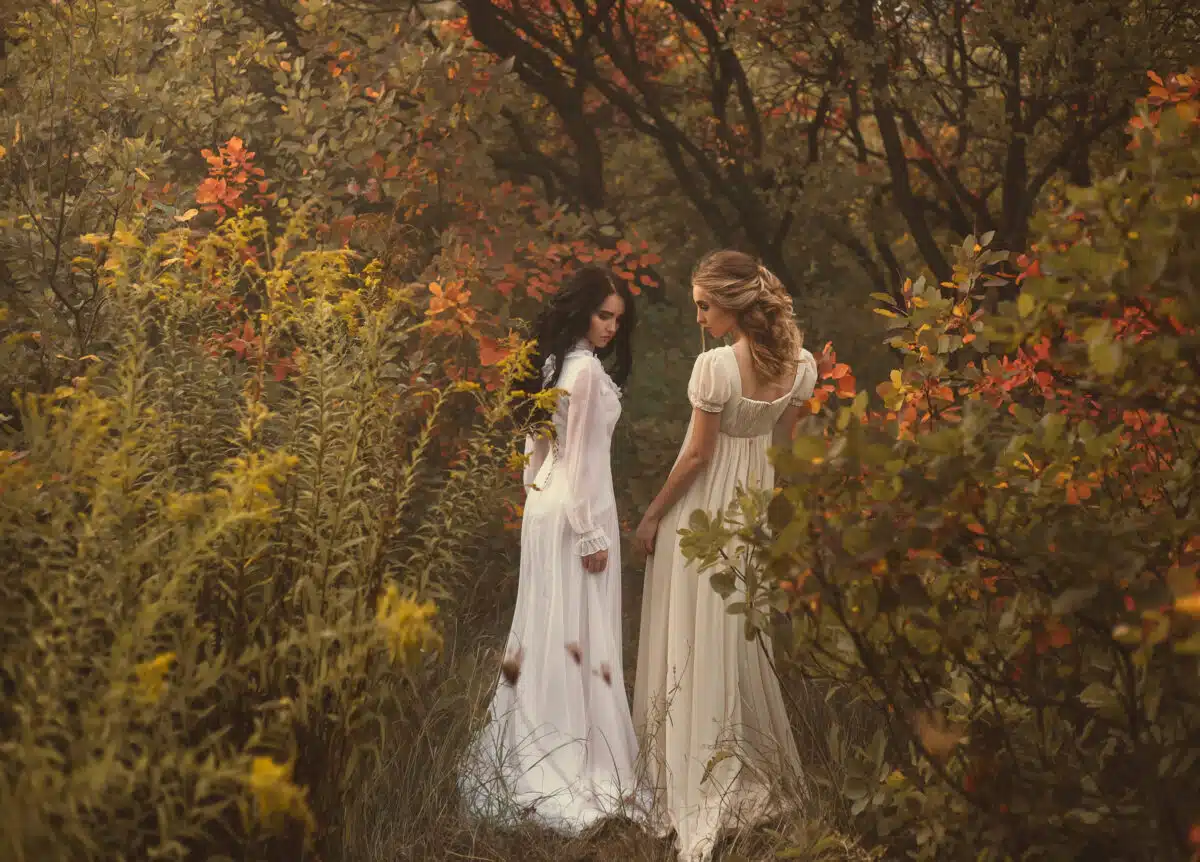
“The Sisters” by Felicia Hemans
“I Go, sweet sister ! yet, my heart would linger
with thee fain,
And unto every parting gift some deep
remembrance chain:
Take, then, the braid of Eastern pearls which once
I loved to wear,
And with it bind for festal scenes the dark waves
of thy hair!
Its pale, pure brightness will beseem those raven
tresses well,
And I shall need such pomp no more in my lone
convent- cell.”
” Oh, speak not thus, my Leonor ! why part from
kindred love?
Through festive scenes, when thou art gone, my
steps no more shall move!
How could I bear a lonely heart amid a reckless
throng?
I should but miss earth’s dearest voice in every
tone of song.
Keep, keep the braid of Eastern pearls, or let me
proudly twine
Its wreath once more around that brow, that
queenly brow of thine.”
“Oh, wouldst thou strive a wounded bird from
shelter to detain?
Or wouldst thou call a spirit freed to weary life
again?
From “The Forest Sanctuary” by Felicia Hemans
Therefore didst thou, through that heart-shaking
scene,
As through a triumph move; and cast aside
Thine own sweet thoughtfulness for victory’s mien,
O faithful sister! cheering thus the guide,
And friend, and brother of thy sainted youth,
Whose hand had led thee to the source of truth,
Where thy glad soul from earth was purified ;
Nor wouldst thou, following him through all the
past,
That he should see thy step grow tremulous at last.
“The Sisters Of Scio” by Felicia Hemans
“Sister, Sweet sister! let me weep awhile!
Bear with me-give the sudden passion way!
Thoughts of our own lost home, our sunny isle,
Come as a wind that o’er a reed hath sway;
Till my heart dies with yearnings and sick fears—
Oh! could my life melt from me in these tears!
“Our father’s voice, our mother’s gentle eye,
Our brother’s bounding step-where are they,
where?
Desolate, desolate our chambers lie!
-Howhast thou won thy spirit from despair?
O’er mine swift shadows, gusts of terror, sweep:
I sink away-bear with me-let me weep!”
“Yes! weep my sister! weep, till from thy heart
The weight flow forth in tears ; yet sink thou
I bind my sorrow to a lofty part, [not.
For thee, my gentle one ! our orphan lot
To meet in quenchless trust. My soul is strong :
Thou, too, wilt rise in holy might ere long
“Abreath of our free heavens and noble sires,
Amemory ofour old victorious dead- [fires
These mantle me with power ; and though their
In a frail censer briefly may be shed,
Yet shall they light us onward, side by side
Have the wild birds, and have not we, a guide ?
“Cheer, then, beloved ! on whose meek brow is set
Our mother’s image-in whose voice a tone,
A faint, sweet sound of hers is lingering yet,
An echo of our childhood’s music gone.
Cheer thee thy sister’s heart and faith are high :
Our path is one-with thee I live and die!”

“Sister! Since I Met Thee Last” by Felicia Hemans
Sister since I met thee last,
O’er thy brow a change hath past.
In the softness of thine eyes,
Deep and still a shadow lies;
From thy voice there thrills a tone
Never to thy childhood known;
Through thy soul a storm hath moved,
—Gentle sister! thou hast loved!
Yes! thy varying cheek hath caught
Hues too bright from troubled thought;
Far along the wandering stream
Thou art follow’d by a dream;
In the woods and valleys lone
Music haunts thee, not thine own:
Wherefore fall thy tears like rain?
—Sister ! thou hast loved in vain!
Tell me not the tale, my flower!
On my bosom pour that shower!
Tell me not of kind thoughts wasted;
Tell me not of young hopes blasted;
Wring not forth one burning word,
Let thy heart no more be stirr’d!
Home alone can give thee rest.
—Weep, sweet sister! on my breast!
“From A Brother To His Sister On Her Birthday” by Thomas Edwards Hankinson
Oh, dinna ye ken, how the daisies bloom
Suld deck the lily lea,
Howthe bright sun, glinting through the gloom,
Suld brust the violet’s mossy tomb
To twine a wreath for thee?
But, wae for the lang, lang winter daie!
Baith violet blue, and daisie gaie,
And ” the flowers of the forest are a’ wede away!”
I hae na wreath for thee, lassie,
I hae na wreath for thee;
Na wilding nursed by spring’s ain sigh,
Na blossom springing tardilie,
To twine aboot thy bree:
But, ah, I send my tiny lay,
Wi’ prayers for mony an happy daie,
Though “the flowers of the forest are a’ wede
away. “
For kenned by Him, wha dwells above,
A brither’s prayer maun be;
And, oh, methinks a brither’s love ,
Than these frail diamonds of the grove,
A fairer wreath for thee!
“Twill live through life’s short cloudy daie,
“Twill bloom in heaven’s eternal ray;
When ” the flowers of the forest are a’ wede away.”
From “Ovoca: An Idyllic Poem” by Edmund John Armstrong
Allan.
I fear you, brother, when you talk of love.
I tremble lest I lose you, lest I lose
The blessed light and warmth of brotherhood
In this great passion. Tell me once again.
Of the old time.
Edwin.
I love you more for this ;
Trust me, my brother-love will never change.
Allan.
I do believe it, Edwin, though I fail
And falter in this twilight. O, talk on
About the olden time!
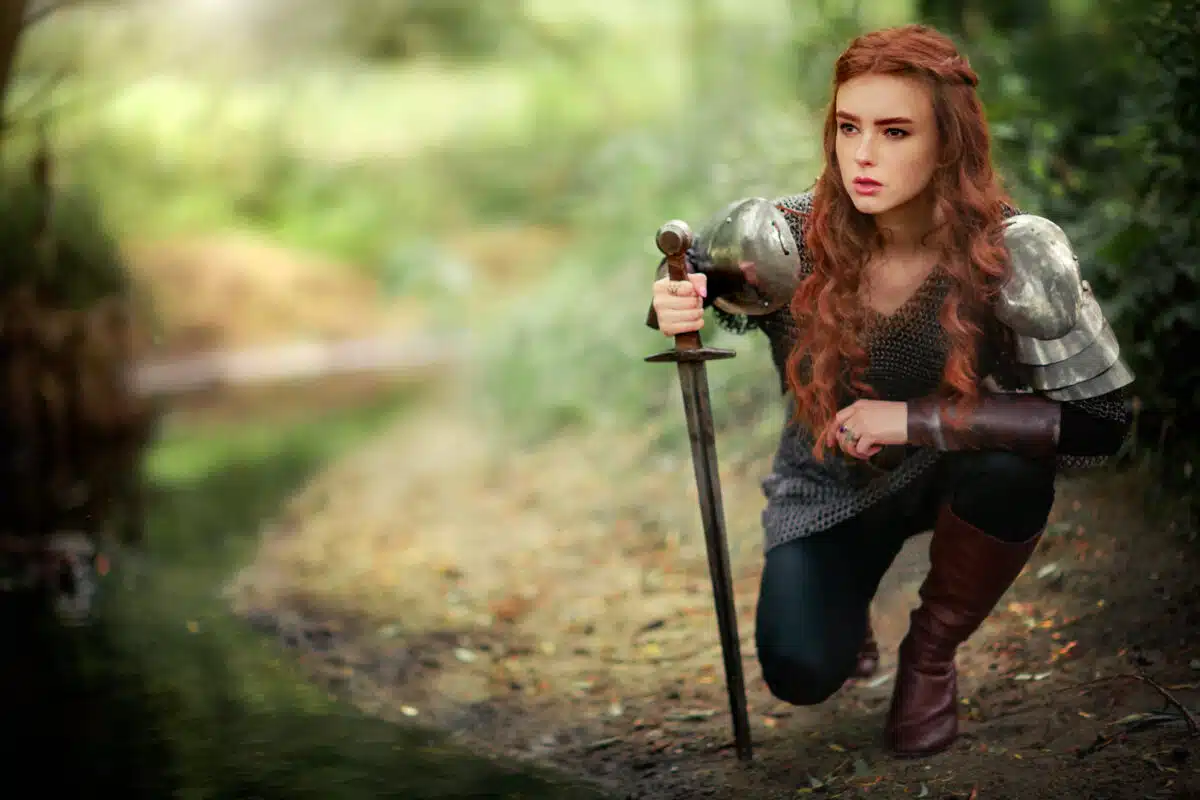
“To My Brother” by Vera Mary Brittain
Your battle-wounds are scars upon my heart,
Received when in that grand and tragic “show”
You played your part
Two years ago,
And silver in the summer morning sun
I see the symbol of your courage glow—
That Cross you won
Two years ago.
Though now again you watch the shrapnel fly,
And hear the guns that daily louder grow,
As in July
Two years ago,
May you endure to lead the Last Advance
And with your men pursue the flying foe
As once in France
Two years ago.
“To Another Sister” by Vera Mary Brittain
I knew that you had suffered many things,
For I could see your eyes would often weep
Through bitter midnight hours when others sleep;
And in your smile the lurking scorn that springs
From cruel knowledge of a love, once deep,
Grown gradually cold, until the stings
Pierce mercilessly of a past that clings
Undying to your lonely path and steep.
So, loved and honoured leader, I would pray
That hidden future days may hold in store
Some solace for your yearning even yet,
And in some joy to come you may forget
The burdened toil you will not suffer more,
And see the War-time shadows fade away.
“Beatrice” by Lewis Carroll
In her eyes is the living light
Of a wanderer to earth
From a far celestial height:
Summers five are all the span—
Summers five since Time began
To veil in mists of human night
A shining angel-birth.
Does an angel look from her eyes?
Will she suddenly spring away,
And soar to her home in the skies?
Beatrice! Blessing and blessed to be!
Beatrice! Still, as I gaze on thee,
Visions of two sweet maids arise,
Whose life was of yesterday:
Of a Beatrice pale and stern,
With the lips of a dumb despair,
With the innocent eyes that yearn—
Yearn for the young sweet hours of life,
Far from sorrow and far from strife,
For the happy summers, that never return,
When the world seemed good and fair:
Of a Beatrice glorious, bright—
Of a sainted, ethereal maid,
Whose blue eyes are deep fountains of light,
Cheering the poet that broodeth apart,
Filling with gladness his desolate heart,
Like the moon when she shines thro’ a cloudless night
On a world of silence and shade.
And the visions waver and faint,
And the visions vanish away
That my fancy delighted to paint—
She is here at my side, a living child,
With the glowing cheek and the tresses wild,
Nor death-pale martyr, nor radiant saint,
Yet stainless and bright as they.
For I think, if a grim wild beast
Were to come from his charnel-cave,
From his jungle-home in the East—
Stealthily creeping with bated breath,
Stealthily creeping with eyes of death—
He would all forget his dream of the feast,
And crouch at her feet a slave.
She would twine her hand in his mane:
She would prattle in silvery tone,
Like the tinkle of summer-rain—
Questioning him with her laughing eyes,
Questioning him with a glad surprise,
Till she caught from those fierce eyes again
The love that lit her own.
And be sure, if a savage heart,
In a mask of human guise,
Were to come on her here apart—
Bound for a dark and a deadly deed,
Hurrying past with pitiless speed—
He would suddenly falter and guiltily start
At the glance of her pure blue eyes.
Nay, be sure, if an angel fair,
A bright seraph undefiled,
Were to stoop from the trackless air,
Fain would she linger in glad amaze—
Lovingly linger to ponder and gaze,
With a sister’s love and a sister’s care,
On the happy, innocent child.
Poems About Friendship and Brotherhood

“To Our Friends” by James Weldon Johnson
We’ve kept the faith. Our souls’ high dreams
Untouched by bondage and its rod,
Burn on! and on! and on! It seems
We shall have FRIENDS—while God is God!
“Friendship” by Ralph Waldo Emerson
A ruddy drop of manly blood
The surging sea outweighs;
The world uncertain comes and goes,
The lover rooted stays.
I fancied he was fled,—
And, after many a year,
Glowed unexhausted kindliness,
Like daily sunrise there.
My careful heart was free again;
O friend, my bosom said,
Through thee alone the sky is arched,
Through thee the rose is red;
All things through thee take nobler form,
And look beyond the earth;
The mill-round of our fate appears
A sun-path in thy worth.
Me too thy nobleness has taught
To master my despair;
The fountains of my hidden life
Are through thy friendship fair.
From “On Friendship” by Nicholas Grimald
Of all the heavenly gifts that mortal men commend,
What trusty treasure in the world can countervail a friend?
Our health is soon decayed; goods, casual, light and vain;
Broke have we seen the force of power, and honor suffer stain.
In body’s lust man doth resemble but base brute;
True virtue gets and keeps a friend, good guide of our pursuit,
Whose hearty zeal with ours accords in every case;
No term of time, no space of place, no storm can it deface.
When fickle fortune fails, this knot endureth still;
Thy kin out of their kind may swerve, when friends owe thee goodwill.
What sweeter solace shall befall, than [such a] one to find
Upon whose breast thou may’st repose the secrets of thy mind?
He waileth at thy woe, his tears with thine be shed;
With thee doth he all joys enjoy, so leef a life is led.
Behold thy friend, and of thyself the pattern see,
One soul, a wonder shall it seem in bodies twain to be;
In absence present, rich in want, in sickness sound,
Yea, after death alive, mayst thou by thy sure friend be found.
Each house, each town, each realm, by thy steadfast love doth stand;
While foul debate breeds bitter bale in each divided land.
O Friendship, flower of flowers! O lively sprite of life!
O sacred bond of blissful peace, the stalworth staunch of strife!
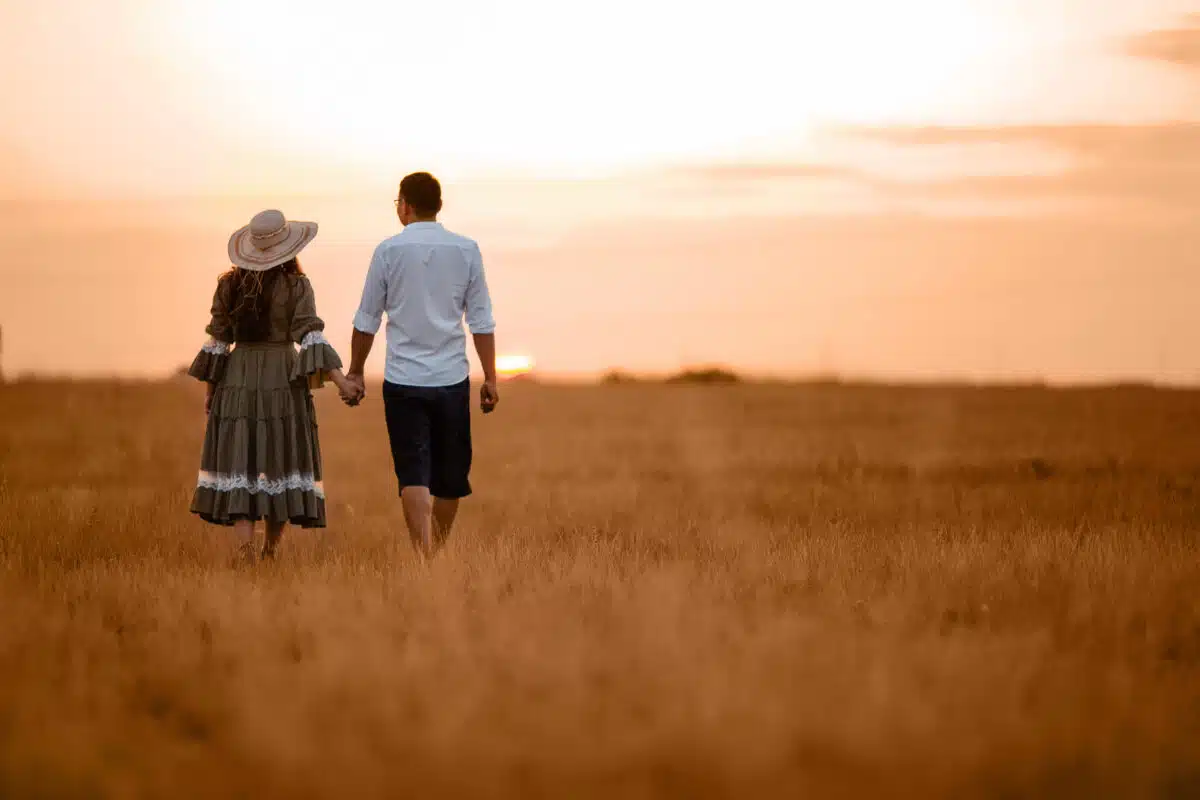
“A Mile With Me” by Henry van Dyke
O who will walk a mile with me
Along life’s merry way?
A comrade blithe and full of glee,
Who dares to laugh out loud and free,
And let his frolic fancy play,
Like a happy child, through the flowers gay
That fill the field and fringe the way
Where he walks a mile with me.
And who will walk a mile with me
Along life’s weary way?
A friend whose heart has eyes to see
The stars shine out o’er the darkening lea,
And the quiet rest at the end o’ the day,—
A friend who knows, and dares to say,
The brave, sweet words that cheer the way
Where he walks a mile with me.
With such a comrade, such a friend,
I fain would walk till journeys end,
Through summer sunshine, winter rain,
And then?—Farewell, we shall meet again!
“Early Friendship” by Aubrey Thomas de Vere
The half-seen memories of childish days,
When pains and pleasures lightly came and went;
The sympathies of boyhood rashly spent
In fearful wanderings through forbidden ways;
The vague, but manly wish to tread the maze
Of life to noble ends,—whereon intent,
Asking to know for what man here is sent,
The bravest heart must often pause, and gaze;
The firm resolve to seek the chosen end
Of manhood’s judgment, cautious and mature,—
Each of these viewless bonds binds friend to friend
With strength no selfish purpose can secure:
My happy lot is this, that all attend
That friendship which first came, and which shall last endure.
“The Vale of Avoca” by Thomas Moore
There is not in this wide world a valley so sweet
As that vale in whose bosom the bright waters meet;
O, the last ray of feeling and life must depart
Ere the bloom of that valley shall fade from my heart!
Yet it was not that Nature had shed o’er the scene
Her purest of crystal and brightest of green;
’T was not the soft magic of streamlet or hill,—
O, no! it was something more exquisite still.
’T was that friends, the beloved of my bosom, were near,
Who made every dear scene of enchantment more dear,
And who felt how the best charms of nature improve,
When we see them reflected from looks that we love.
Sweet Vale of Avoca! how calm could I rest
In thy bosom of shade, with the friends I love best;
Where the storms that we feel in this cold world should cease,
And our hearts, like thy waters, be mingled in peace.

“We have been friends together” by Caroline Elizabeth Sarah (Sheridan) Norton
We have been friends together
In sunshine and in shade,
Since first beneath the chestnut-tree
In infancy we played.
But coldness dwells within thy heart,
A cloud is on thy brow;
We have been friends together,
Shall a light word part us now?
We have been gay together;
We have laughed at little jests;
For the fount of hope was gushing
Warm and joyous in our breasts,
But laughter now hath fled thy lip,
And sullen glooms thy brow;
We have been gay together,
Shall a light word part us now?
We have been sad together;
We have wept with bitter tears
O’er the grass-grown graves where slumbered
The hopes of early years.
The voices which were silent then
Would bid thee cheer thy brow;
We have been sad together,
Shall a light word part us now?
“Parted Friends” by James Montgomery
Friend after friend departs:
Who hath not lost a friend?
There is no union here of hearts
That finds not here an end;
Were this frail world our only rest,
Living or dying, none were blest.
Beyond the flight of time,
Beyond this vale of death,
There surely is some blessèd clime
Where life is not a breath,
Nor life’s affections transient fire,
Whose sparks fly upward to expire.
There is a world above,
Where parting is unknown;
A whole eternity of love,
Formed for the good alone;
And faith beholds the dying here
Translated to that happier sphere.
Thus star by star declines,
Till all are passed away,
As morning high and higher shines,
To pure and perfect day;
Nor sink those stars in empty night;
They hide themselves in heaven’s own light.
“We Love but Few” by Anonymous
Oh, yes, we mean all kind words that we say
To old friends and to new;
Yet doth this truth grow clearer day by day:
We love but few.
We love! we love! What easy words to say,
And sweet to hear,
When sunrise splendor brightens all the way,
And, far and near,
Are breath of flowers and carolling of birds,
And bells that chime;
Our hearts are light: we do not weigh our words
At morning time!
But when the matin music all is hushed,
And life’s great load
Doth weigh us down, and thick with dust
Doth grow the road,
Then do we say less often that we love.
The words have grown!
With pleading eyes we look to Christ above,
And clasp our own.
Their lives are bound to ours by mighty bands
No mortal strait,
Nor Death himself, with his prevailing hands,
Can separate.
The world is wide, and many friends are dear,
And friendships true;
Yet do these words read plainer, year by year:
We love but few.
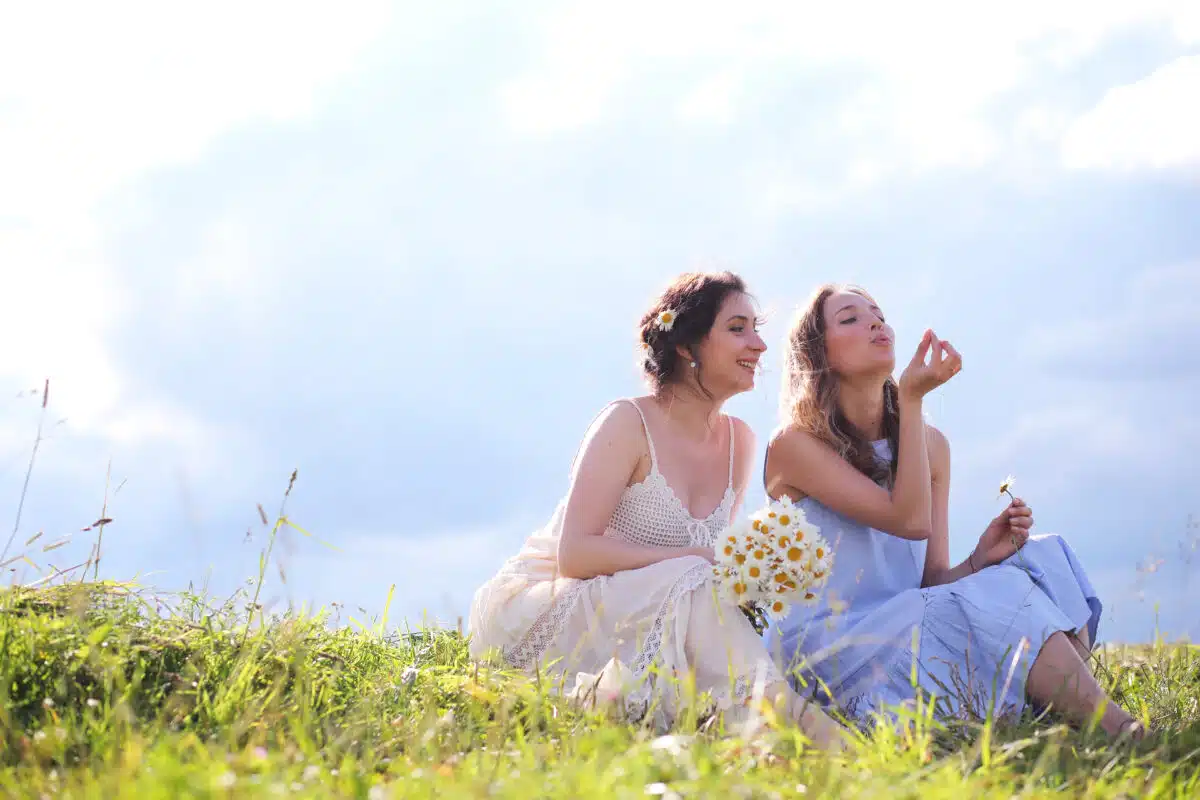
“Friendship” by Thomas Moore
The daylight is gone — but before we depart,
One cup shall go ‘ round to the friend of my heart,
The kindest, the dearest — oh, judge by the tear
I now shed while I name him, how kind and how dear.
Oh, say, is it thus in the mirth bringing hour,
When friends are assembled, when wit, in full flower
Shoots forth from the lip under Bacchus’s dew,
In blossoms of though ever springing and new ,
Do you sometimes remember, and hallow the brim
Of your cup with a sigh , as you crown it to him
Who is lonely and sad in these valleys so fair,
And would pine in Elysium, if friends were not there.
“Friendship” by Ella Wheeler Wilcox
Dear friend , I pray thee, if thou wouldst be proving
Thy strong regard for me,
Make me no vows. Lip service is not loving;
Let thy faith speak for thee.
Swear not to me that nothing can divide us,
So little such oaths mean,
But when distrust and envy creeps beside us,
Let them not come between.
Say not to me the depths of thy devotion
Are deeper than the sea ;
But watch, lest doubt of some unkind emotion
Embittered them for me.
Vow not to love me ever and forever,
Words are such idle things,
But when we differ in opinions, never
Hurt me by little stings.
I’m sick of words, they are so lightly spoken
And spoken as but air.
I’d rather feel thy trust in me unbroken
Than list to thy words so fair.
If all the little proofs of trust are heeded,
If thou art always kind,
No sacrifice, no promise will be needed
To satisfy my mind.
“Friend” by Charles Coke Woods
I would empty thy chalice of heart-ache and pain,
Would freshen thy desert with flowers and rain,
Would draw out the bitter and pour in the sweet,
And remove every thorn from the way of thy feet;
Would sing in the gladness of summer and bloom,
And sing out the sadness of winter and gloom ,
Would lessen thy load by enlarging thy life,
I would sing back repose, and would sing away strife.
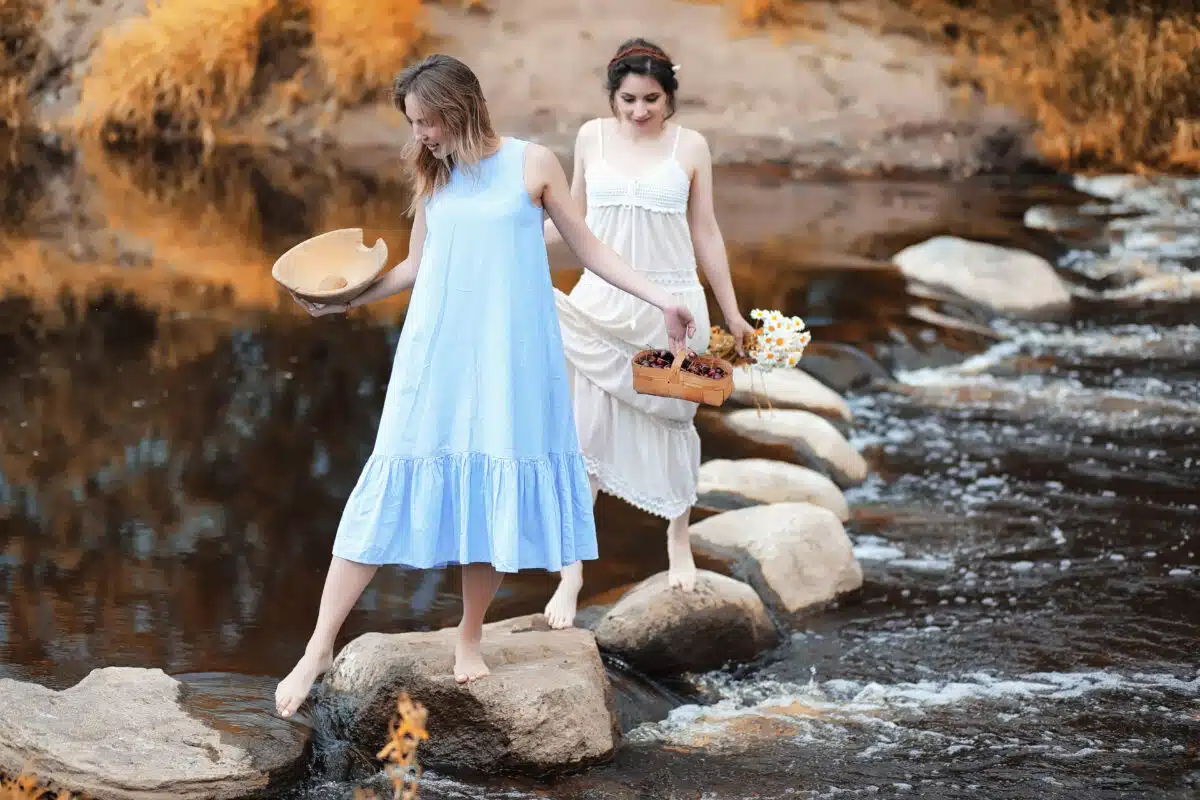
“A Friend In Need” by Henry Van Dyke
“A friend in need,” my neighbor said to me
“A friend indeed is what I mean to be;
In time of trouble I will come to you
And in the hour of need you’ll find me true.”
I thought a bit, and took him by the hand;
“My friend,” said I, you do not understand
The inner meaning of that simple rhyme
A friend is what the heart needs all the time.
“Friends” by James Montgomery
Friend after friend departs;
Who hath not lost a friend?
There is no union here of hearts
That finds not here an end;
Were this frail world our only rest,
Living or dying, none were blest.
Beyond the flight of Time,
Beyond this vale of death,
There surely is some blessed clime
Where life is not a breath,
Nor life’s affections transient fire
Whose sparks fly upward to expire.
“Autumn Leaves” by Juliana Horatia Ewing
The Spring’s bright tints no more are seen,
And Summer’s ample robe of green
Is russet-gold and brown;
When flowers fall to every breeze
And, shed reluctant from the trees,
The leaves drop down.
A sadness steals about the heart,
—And is it thus from youth we part,
And life’s redundant prime?
Must friends like flowers fade away,
And life like Nature know decay,
And bow to time?
And yet such sadness meets rebuke,
From every copse in every nook
Where Autumn’s colours glow;
How bright the sky! How full the sheaves!
What mellow glories gild the leaves
Before they go.
Then let us sing the jocund praise,
In this bright air, of these bright days,
When years our friendships crown;
The love that’s loveliest when ’tis old—
When tender tints have turned to gold
And leaves drop down.

“The Friend” by Richard Le Gallienne
Through the dark wood
There came to me a friend,
Bringing in his cold hands
Two words – ‘The End.’
His face was fair
As fading autumn flowers,
And the lost joy
Of unforgotten hours.
His voice was sweet
As rain upon a grave;
‘Be brave,’ he smiled.
And yet again – ‘be brave.’
“A Friend In Need” by Dora Sigerson Shorter
Who has room for a friend
Who has money to spend,
And a goblet of gold
For your fingers to hold,
At the wave of whose hand
Leap the salmon to land,
Drop the birds of the air,
Fall the stag and the hare.
Who has room for a friend
Who has money to lend?
We have room for a friend!
Who has room for a friend
Who has nothing to lend,
When the goblet of gold
Is as far from his hold
As the fleet-footed hare,
Or the birds of the air.
Who has room for a friend
Who has nothing to spend?
We know not such a friend.
“Friend Of A Wayward Hour” by James Whitcomb Riley
Friend of a wayward hour, you came
Like some good ghost, and went the same;
And I within the haunted place
Sit smiling on your vanished face,
And talking with – your name.
But thrice the pressure of your hand –
First hail – congratulations – and
Your last “God bless you!” as the train
That brought you snatched you back again
Into the unknown land.
“God bless me?” Why, your very prayer
Was answered ere you asked it there,
I know – for when you came to lend
Me your kind hand, and call me friend,
God blessed me unaware.

“The Friends” by Lennox Amott
We were friends, and the warmest of friends, he and I,
Each glance was a language that broke from the heart,
No cloudlet swept over the realm of the sky,
And beneath it we swore that we never would part.
Our fingers were clasped with the clasp of a friend,
Each bosom rebounded with youthful delight,
We were foremost to honour and strong to defend,
And Heaven, beholding, was charmed at the sight.
Around us the pine-crested mountains were piled,
The sward in the vale was as down to the feet,
The far-rolling woodlands were pathless and wild,
And Nature was garbed in a grandeur complete.
Said he, “We are here side by side and alone,
Let us thus in the shade for a little remain,
For we may not return here ere boyhood is flown,
It may be we never shall meet so again.
Come, friend, and record on this reverend oak
Thy name by my own, they shall stand side by side”
And I hastened to do so with glee as he spoke,
And I gazed on the names with a feeling of pride.
Traced deep on the bark they were goodly to see–
What traced by the finger of Friendship is not?
Together they smiled on the trunk of the tree
And as brothers we stood on that sanctified spot.
But alas for a murmur that swept through the trees,
For the sound was a sound as of something sad,
Like a wail that awakes in a breast ill at ease,
‘Twas strange it should be so when all was so glad.
And often since then have I roamed through the vale,
My way have I bent to my favourite tree,
But its branches resound with the self-same wail
Which seems to repeat “Where is he, where is he?”
And again and again have I loved to behold
And fashion the storm-beaten letters anew,
While lingering there as in summers of old,
That spot–it is sweet, it is dear to me too!
Our steps–ah! how fond was our intercourse then–
Like the leaves of the autumn have drifted apart,
And the voices that moan in that overgrown glen
Now melt into weeping the sorrowful heart.
“Friends” by Emily Elizabeth Dickinson
Are friends delight or pain?
Could bounty but remain
Riches were good.
But if they only stay
Bolder to fly away,
Riches are sad.
“Friendship” by Alfred Lord Tennyson
O thou most holy Friendship! wheresoe’er
Thy dwelling be–for in the courts of man
But seldom thine all-heavenly voice we hear,
Sweet’ning the moments of our narrow span;
And seldom thy bright foot-steps do we scan
Along the weary waste of life unblest,
For faithless is its frail and wayward plan,
And perfidy is man’s eternal guest,
With dark suspicion link’d and shameless interest!–
‘Tis thine, when life has reach’d its final goal,
Ere the last sigh that frees the mind be giv’n,
To speak sweet solace to the parting soul,
And pave the bitter path that leads to heav’n:
‘Tis thine, whene’er the heart is rack’d and riv’n
By the hot shafts of baleful calumny,
When the dark spirit to despair is driv’n,
To teach its lonely grief to lean on thee,
And pour within thine ear the tale of misery.
But where art thou, thou comet of an age,
Thou phoenix of a century? Perchance
Thou art but of those fables which engage
And hold the minds of men in giddy trance.
Yet, be it so, and be it all romance,
The thought of thine existence is so bright
With beautiful imaginings–the glance
Upon thy fancied being such delight,
That I will deem thee Truth, so lovely is thy might!
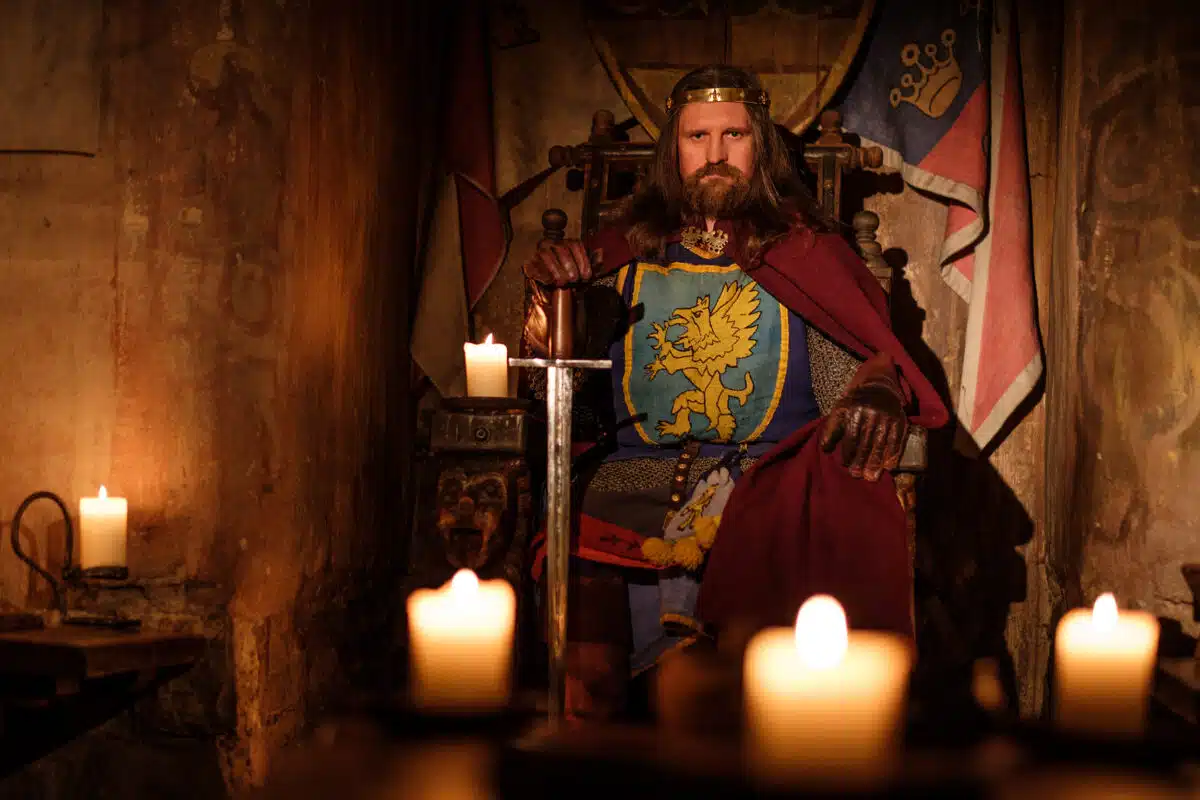
“A Friend” by Lionel Johnson
All that he came to give,
He gave and went again:
I have seen one man live,
I have seen one man reign,
With all the graces in his train.
As one of us, he wrought
Things of the common hour:
Whence was the charmed soul brought,
That gave each act such power;
The natural beauty of a flower?
Magnificence and grace,
Excellent courtesy:
Abrightness on the face,
Airs of high memory:
Whence came all these, to such as he?
Like young Shakespearean kings,
He won the adoring throng:
And as Apollo sings,
He triumphed with a song:
Triumphed, and sang, and passed along.
With a light word, he took
The hearts of men in thrall:
And, with a golden look,
Welcomed them, at his call
Giving their love, their strength, their all.
No man less proud than he,
Nor cared for homage less:
Only, he could not be
Far off from happiness:
Nature was bound to his success.
Weary, the cares, the jars,
The lets, of every day:
But the heavens filled with stars,
Chanced he upon the way:
And where he stayed, all joy would stay.
Now when the night draws down,
When the austere stars burn;
Roaming the vast live town,
My thoughts and memories yearn
Toward him, who never will return.
Yet have I seen him live,
And owned my friend, a king:
All that he came to give,
He gave and I , who sing
His praise, bring all I have to bring.
“Long, Long Ago” by Gerald Massey
Old friend of mine, you were dear to my heart,
Long, long ago, long ago.
Little did we think of a time we should part,
Long, long ago, long ago.
Hand clasped in hand through the world we would go.
Down our old untrodden path the wild weeds grow!
Great was the love ‘ twixt us ; bitter was the smart:
Old friend of mine long ago.
Patient watch I kept for you many, many a day,
Long, long ago, long ago;
Waited and wept for you far, far away,
Long, long ago, long ago.
Merry came each May-tide, green leaves would start:
Never came my old friend back to my heart.
Lonely I went on my weary, weary way,
Old friend of mine long ago.
Oft as I muse at the shadowy nightfall
Over the dear Long Ago,
Borne on tears arises the dark, dark pall,
Fallen on my heart long ago.
Love is not dead, though we wander apart ;
How I could clasp you, old friend, to my heart!
Barriers lie between us, but God knoweth all,
Old friend of mine long ago.
“Counsel” by Mary Evelyn Moore Davis
If thou shouldst bid thy friend farewell,
But for one night though that farewell may be,
Press thou his hand in thine ; thou canst not tell
How far from thee
Fate or caprice may lead his feet
Ere that to-morrow come. Men have been known
Lightly to turn the corner of a street,
And days have grown
To months, and months to lagging years,
Before they look on loving eyes again.
Parting, at best, is underlaid with tears,
With tears and pain,
Therefore, lest sudden death should come between,
Or time, or distance, clasp with pressure true
The palm of him who goeth forth; unseen,
Fate goeth too!
Yea, find thou always time to say
Some earnest word betwixt the idle talk,
Lest with thee henceforth ever, night and day,
Regret should walk.
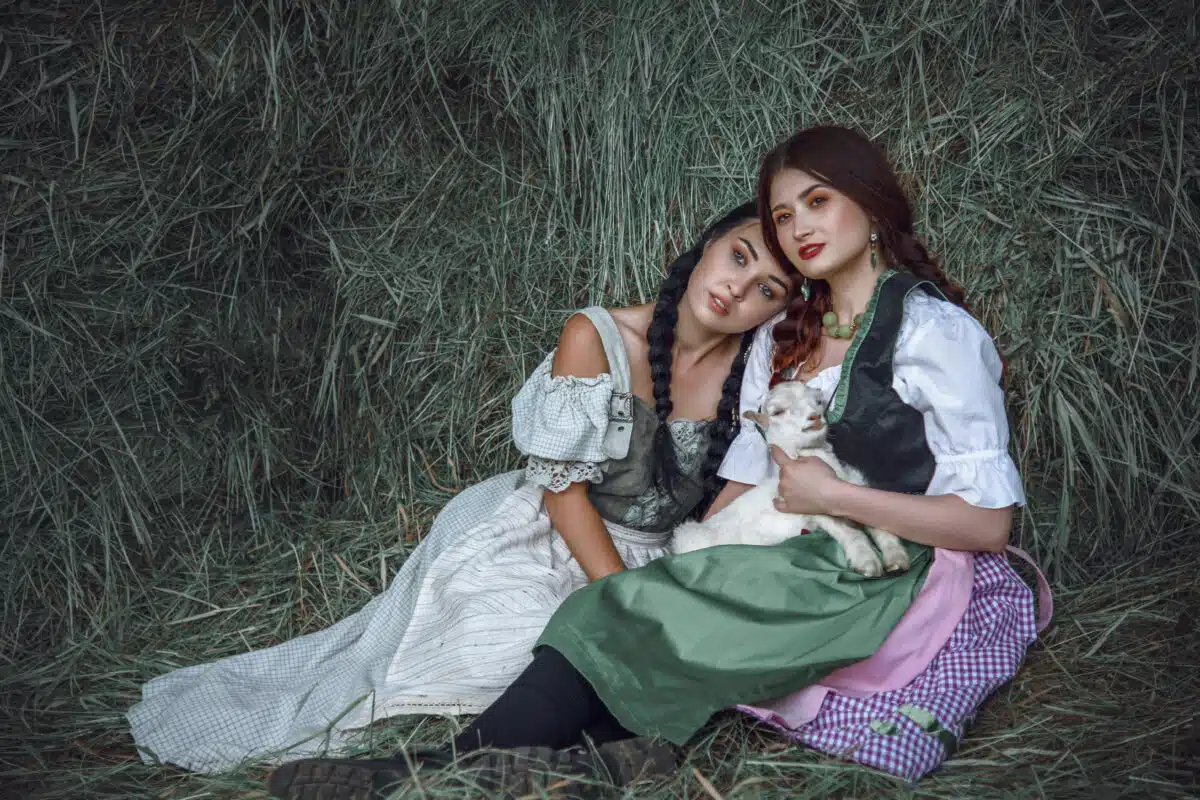
“To A Friend” by Hartley Coleridge
When we were idlers with the loitering rills,
The need of human love we little noted:
Our love was nature; and the peace that floated
On the white mist, and dwelt upon the hills ,
To sweet accord subdued our wayward wills:
One soul was ours, one mind, one heart devoted,
That, wisely doting, asked not why it doted,
And ours the unknown joy, which knowing kills.
But now I find how dear thou wert to me;
That man is more than half of nature’s treasure,
Of that fair beauty which no eye can see,
Of that sweet music which no ear can measure;
And now the streams may sing for others’ pleasure,
The hills sleep on in their eternity.
“Farewell! But Whenever” by Thomas Moore
Farewell! –but whenever you welcome the hour
That awakens the night-song of mirth in your bower,
Then think of the friend who once welcomed it too,
And forgot his own griefs, to be happy with you.
His griefs may return, -not a hope may remain
Of the few that have brightened his pathway of pain, –
But he ne’er will forget the short vision that threw
Its enchantment around him, while ling’ring with you!
And still on that evening, when Pleasure fills up
To the highest top sparkle each heart and each cup,
Where’er my path lies, be it gloomy or bright,
My soul, happy friends, shall be with you that night;
Shall join in your revels , your sports , and your wiles,
And return to me, beaming all o’er with your smiles , —
Too blest if it tell me that, ‘ mid the gay cheer,
Some kind voice had murmured, ” I wish he were here! “
Let Fate do her worst, there are relics of joy,
Bright dreams of the past, which she cannot destroy;
Which come, in the night- time of sorrow and care,
And bring back the features that joy used to wear.
Long, long be my heart with such memories filled!
Like the vase in which roses have once been distilled, –
You may break, you may shatter the vase, if you will,
But the scent of the roses will hang round it still.
“Auld Lang Syne” by Robert Burns
Should auld acquaintance be forgot,
And never brought to min’?
Should auld acquaintance be forgot,
And days o’ lang syne?
For auld lang syne, my dear,
For auld lang syne,
We’ll tak a cup o’ kindness yet
For auld lang syne.
We twa hae rin about the braes,
And pu’d the gowans fine;
But we’ve wandered monie a weary fit
Sin’ auld lang syne.
We twa hae paidl’t i’ the burn,
Frae mornin’ sun till dine;
But seas between us braid hae roared
Sin’ auld lang syne.
And here’s a hand, my trusty fiere,
And gie’s a hand o’ thine ;
And we’ll tak a right guid willie- waught
For auld lang syne.
And surely ye’ll be your pint-stowp,
And surely I’ll be mine ,
And we’ll tak a cup o’ kindness yet
For auld lang syne!
Inspiring Brotherhood Poems
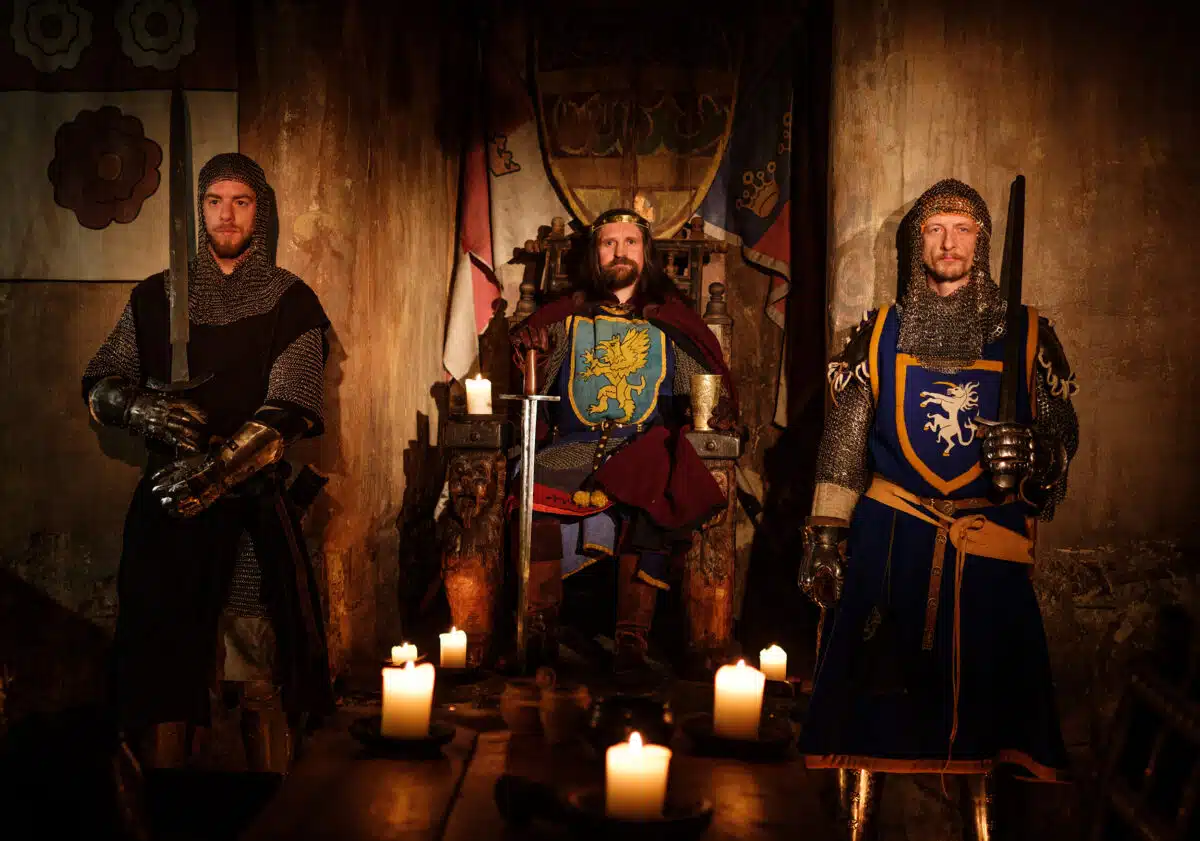
“Brotherhood” by George William Russell
Twilight, a blossom grey in shadowy valleys dwells:
Under the radiant dark the deep blue-tinted bells
In quietness reïmage heaven within their blooms,
Sapphire and gold and mystery. What strange perfumes,
Out of what deeps arising, all the flower-bells fling,
Unknowing the enchanted odorous song they sing!
Oh, never was an eve so living yet: the wood
Stirs not but breathes enraptured quietude.
Here in these shades the ancient knows itself, the soul,
And out of slumber waking starts unto the goal.
What bright companions nod and go along with it!
Out of the teeming dark what dusky creatures flit,
That through the long leagues of the island night above
Come by me, wandering, whispering, beseeching love;
As in the twilight children gather close and press
Nigh and more nigh with shadowy tenderness,
Feeling they know not what, with noiseless footsteps glide
Seeking familiar lips or hearts to dream beside.
O voices, I would go with you, with you, away,
Facing once more the radiant gateways of the day;
With you, with you, what memories arise, and nigh
Trampling the crowded figures of the dawn go by
Dread deities, the giant powers that warred on men
Grow tender brothers and gay children once again;
Fades every hate away before the Mother’s breast
Where all the exiles of the heart return to rest.
“The Negro Soldiers” by James Weldon Johnson
These truly are the Brave,
These men who cast aside
Old memories, to walk the blood-stained pave
Of Sacrifice, joining the solemn tide
That moves away, to suffer and to die
For Freedom—when their own is yet denied!
O Pride! O Prejudice! When they pass by,
Hail them, the Brave, for you now crucified!
These truly are the Free,
These souls that grandly rise
Above base dreams of vengeance for their wrongs,
Who march to war with visions in their eyes
Of Peace through Brotherhood, lifting glad songs,
Aforetime, while they front the firing line.
Stand and behold! They take the field to-day,
Shedding their blood like Him now held divine,
That those who mock might find a better way!
“If We Must Die” by James Weldon Johnson
IF we must die—let it not be like hogs
Hunted and penned in an inglorious spot,
While round us bark the mad and hungry dogs,
Making their mock at our accursed lot.
If we must die—oh, let us nobly die,
So that our precious blood may not be shed
In vain; then even the monsters we defy
Shall be constrained to honor us though dead!
Oh, Kinsmen! We must meet the common foe;
Though far outnumbered, let us still be brave,
And for their thousand blows deal one death-blow!
What though before us lies the open grave?
Like men we’ll face the murderous, cowardly pack,
Pressed to the wall, dying, but—fighting back!
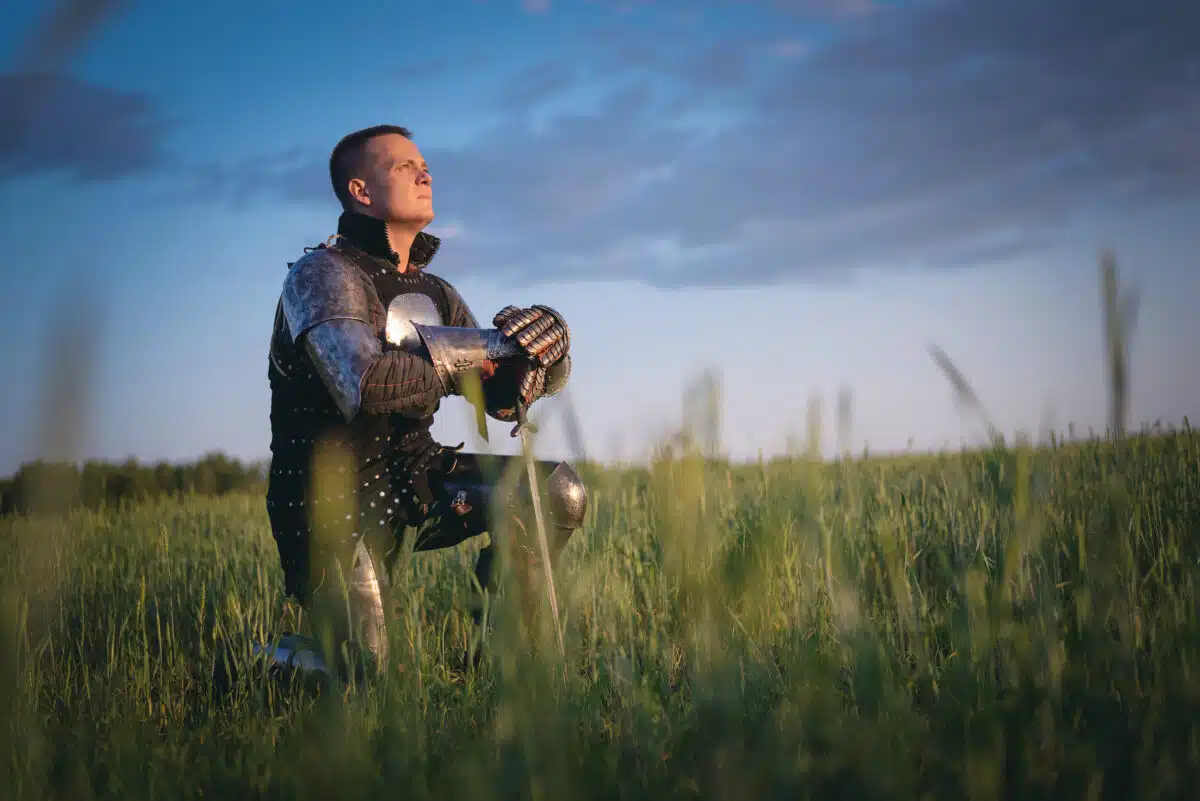
“Peace-Hymn Of The Republic” by Henry Van Dyke
O Lord our God, Thy mighty hand
Hath made our country free;
From all her broad and happy land
May praise arise to Thee.
Fulfill the promise of her youth,
Her liberty defend;
By law and order, love and truth,
America befriend!
The strength of every State increase
In Union’s golden chain;
Her thousand cities fill with peace,
Her million fields with grain.
The virtues of her mingled blood
In one new people blend;
By unity and brotherhood,
America befriend!
O suffer not her feet to stray;
But guide her untaught might,
That she may walk in peaceful day,
And lead the world in light.
Bring down the proud, lift up the poor,
Unequal ways amend;
By justice, nation-wide and sure,
America befriend!
Thro’ all the waiting land proclaim
Thy gospel of good-will;
And may the music of Thy name
In every bosom thrill.
O’er hill and vale, from sea to sea.
Thy holy reign extend;
By faith and hope and charity,
America befriend!
“The Name of France” by Henry Van Dyke
Give us a name to fill the mind
With the shining thoughts that lead mankind,
The glory of learning, the joy of art,—
A name that tells of a splendid part
In the long, long toil and the strenuous fight
Of the human race to win its way
From the feudal darkness into the day
Of Freedom, Brotherhood, Equal Right,—
A name like a star, a name of light.
I give you France!
Give us a name to stir the blood
With a warmer glow and a swifter flood,
At the touch of a courage that conquers fear,—
A name like the sound of a trumpet, clear,
And silver-sweet, and iron-strong,
That calls three million men to their feet,
Ready to march, and steady to meet
The foes who threaten that name with wrong,—
A name that rings like a battle-song.
I give you France!
Give us a name to move the heart
With the strength that noble griefs impart,
A name that speaks of the blood outpoured
To save mankind from the sway of the sword,—
A name that calls on the world to share
In the burden of sacrificial strife
When the cause at stake is the world’s free life
And the rule of the people everywhere,—
A name like a vow, a name like a prayer.
I give you France!
From “America’s Welcome Home” by Henry Van Dyke
Our boys have seen the Old World as none have seen before.
They know the grisly horror of the German gods of war:
The noble faith of Britain and the hero-heart of France,
The soul of Belgium’s fortitude and Italy’s romance.
They bore our country’s great word across the rolling sea,
“America swears brotherhood with all the just and free.”
They wrote that word victorious on fields of mortal strife,
And many a valiant lad was proud to seal it with his life.
Oh, welcome home in Heaven’s peace, dear spirits of the dead!
And welcome home ye living sons America hath bred!
The lords of war are beaten down, your glorious task is done;
You fought to make the whole world free, and the victory is won.
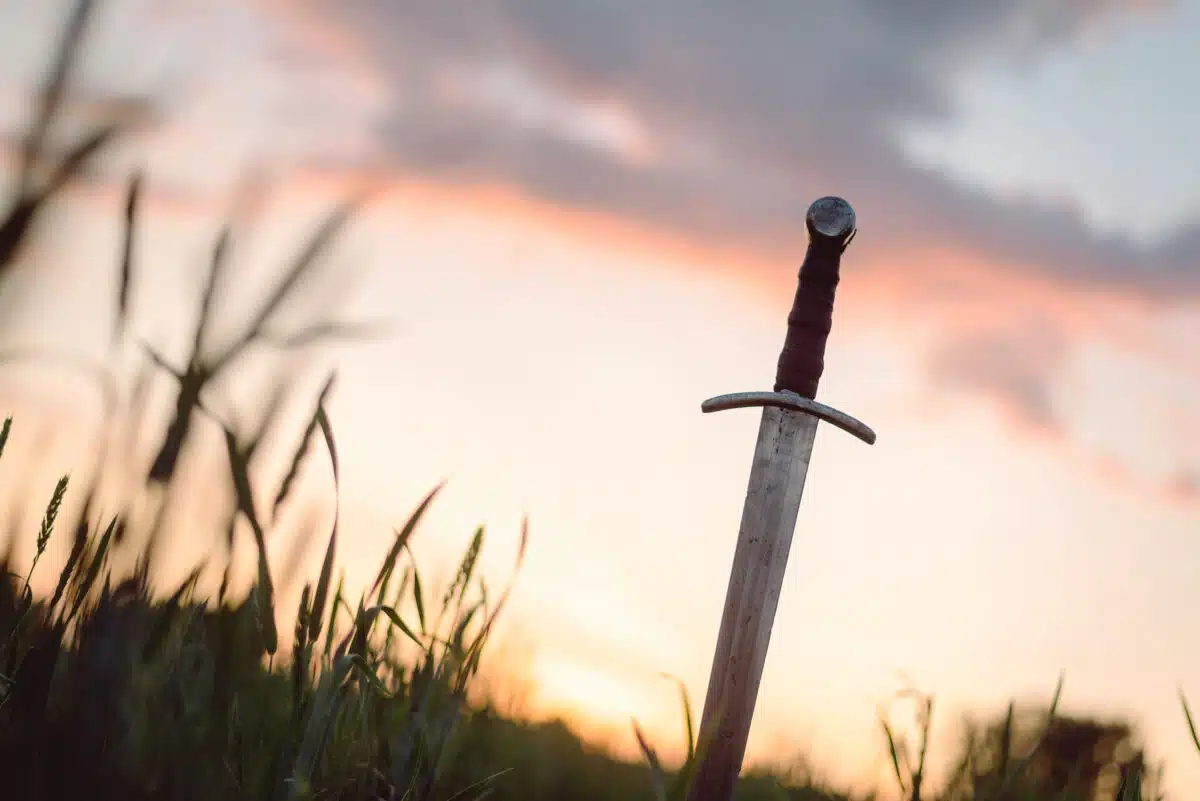
“Listen, Comrades” by Cora C. Bass
Listen, comrades, deep and tender is the burden of the strain,
Like a restful benediction to the battle weary brain.
Over vale and wood and mountain, it shall echo far and wide,
Praising those who fought and conquered, praising those who fought and died.
In the beauty of the springtime with what rapture we have heard
Thrilling notes of martial music till the palsied limbs have stirred,
And we felt to still be marching, marching as we used to do,
With the grand old flag before us and the victory in view.
We were brothers, heroes, comrades, as the charging lines advanced
And the brilliant flash of weapons down the surging columns glanced;
How we struck for home and country through a storm of shot and shell,
And as one we fought and conquered, or as one we fought and fell.
“Comradery” by Madison Julius Cawein
With eyes hand-arched he looks into
The morning’s face, then turns away
With schoolboy feet, all wet with dew,
Out for a holiday.
The hill brook sings, incessant stars,
Foam-fashioned, on its restless breast;
And where he wades its water-bars
Its song is happiest.
A comrade of the chinquapin,
He looks into its knotted eyes
And sees its heart; and, deep within,
Its soul that makes him wise.
The wood-thrush knows and follows him,
Who whistles up the birds and bees;
And ’round him all the perfumes swim
Of woodland loam and trees.
Where’er he pass the supple springs’
Foam-people sing the flowers awake;
And sappy lips of bark-clad things
Laugh ripe each fruited brake.
His touch is a companionship;
His word, an old authority:
He comes, a lyric at his lip,
Unstudied Poesy.
From “To George Felton Matthew” by John Keats
Sweet are the pleasures that to verse belong,
And doubly sweet a brotherhood in song;
Nor can remembrance, Mathew! bring to view
A fate more pleasing, a delight more true
Than that in which the brother Poets joy’d,
Who with combined powers, their wit employ’d
To raise a trophy to the drama’s muses.
The thought of this great partnership diffuses
Over the genius loving heart, a feeling
Of all that’s high, and great, and good, and healing.
Too partial friend! fain would I follow thee
Past each horizon of fine poesy;
Fain would I echo back each pleasant note
As o’er Sicilian seas, clear anthems float
‘Mong the light skimming gondolas far parted,
Just when the sun his farewell beam has darted:
But ’tis impossible; far different cares
Beckon me sternly from soft “Lydian airs,”
And hold my faculties so long in thrall,
That I am oft in doubt whether at all
I shall again see Phoebus in the morning:
Or flush’d Aurora in the roseate dawning!
Or a white Naiad in a rippling stream;
Or a rapt seraph in a moonlight beam;
Or again witness what with thee I’ve seen,
The dew by fairy feet swept from the green,
After a night of some quaint jubilee
Which every elf and fay had come to see:
When bright processions took their airy march
Beneath the curved moon’s triumphal arch.
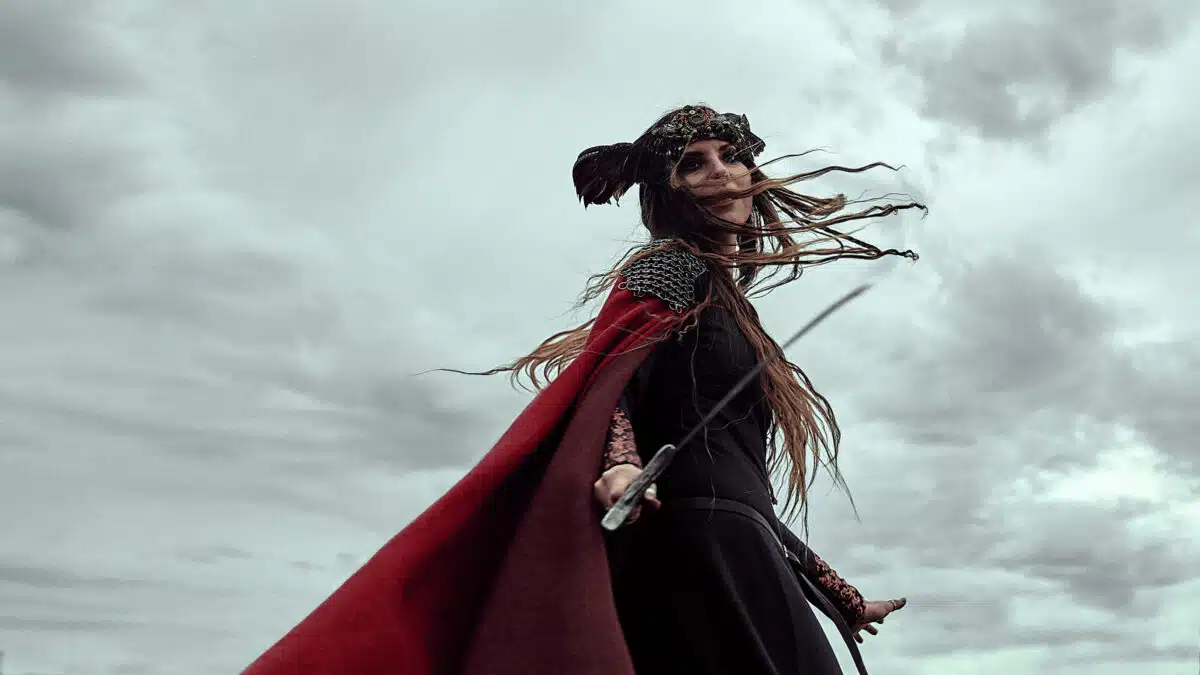
“It Is Not Death To Die” by George Washington Bethune
It is not death to die,
To leave this weary road,
And, midst the brotherhood on high,
To be at home with God.
It is not death to close
The eye long dimmed by tears,
And wake in glorious repose,
To spend eternal years.
It is not death to bear
The wrench that sets us free
From dungeon-chain, to breathe the air
Of boundless liberty.
It is not death to fling
Aside this sinful dust,
And rise on strong, exulting wing,
To live among the just.
Jesus, thou Prince of Life,
Thy chosen cannot die!
Like Thee they conquer in the strife,
To reign with Thee on high.
“Abou Ben Adhem” by Leigh Hunt
Abou Ben Adhem (may his tribe increase!)
Awoke one night from a deep dream of peace,
And saw, within the moonlight in his room,
Making it rich, and like a lily in bloom,
An angel writing in a book of gold: —
Exceeding peace had made Ben Adhem bold,
And to the Presence in the room he said,
“What writest thou? “-The vision raised its head,
And with a look made of all sweet accord,
Answered, “The names of those who love the Lord. “
“And is mine one? ” said Abou. “Nay, not so, “
Replied the Angel. Abou spoke more low,
But cheerly still ; and said, “I pray thee, then,
Write me as one that loves his fellow-men.”
The angel wrote, and vanished. The next night
It came again with a great wakening light,
And showed the names whom love of God had blessed,
And lo! Ben Adhem’s name led all the rest.
“Envoy” by Richard Hovey
I
Whose furthest footstep never strayed
Beyond the village of his birth,
Is but a lodger for the night
In this old wayside inn of earth.
To-morrow he shall take his pack,
And set out for the ways beyond,
On the old trail from star to star,
An alien and a vagabond.
II
If any record of our names
Be blown about the hills of time,
Let no one sunder us in death, —
The man of paint, the men of rhyme.
Of all our good, of all our bad,
This one thing only is of worth, —
We held the league of heart to heart
The only purpose of the earth.
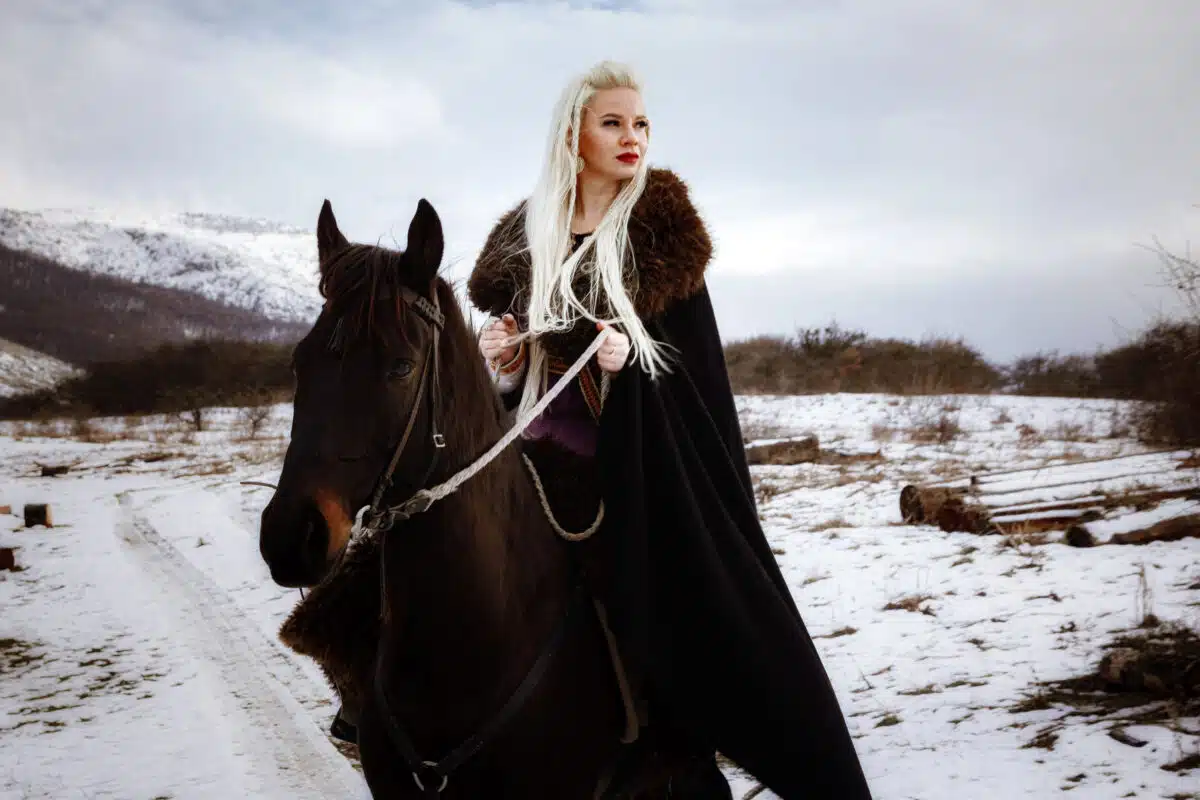
From “Comrades” by George Edward Woodberry
Where are the friends that I knew in my Maying,
In the days of my youth, in the first of my roaming?
We were dear; we were leal; O, far we went straying;
Now never a heart to my heart comes homing!—
Where is he now, the dark boy slender
Who taught me bare-back, stirrup and reins?
I loved him; he loved me; my beautiful, tender
Tamer of horses on grass-grown plains.
Where is he now whose eyes swam brighter,
Softer than love, in his turbulent charms;
Who taught me to strike, and to fall, dear fighter,
And gathered me up in his boyhood arms;
Taught me the rifle , and with me went riding,
Suppled my limbs to the horseman’s war;
Where is he now, for whom my heart’s biding,
Biding, biding-but he rides far?
O love that passes the love of woman!
Who that hath felt it shall ever forget,
When the breath of life with a throb turns human,
And a lad’s heart is to a lad’s heart set?
Ever, forever, lover and rover
They shall cling, nor each from other shall part
Till the reign of the stars in the heavens be over,
And life is dust in each faithful heart!-
“Comrades” by Laurence Housman
I rose up when the battle was dead,
I, the most wounded man of us all!
From the slain that fell, to the living that fled,
Over the waste one name I call.
Thou whose strength was an oak that branched,
Thou whose voice was a fire that burned,
Thine the face that the fighting blanched,
Thine the heart that the tumult turned!
Had I, beloved, when swords swept measure,
Had I but reached thee , and slain thee then:
Then in thy death had my soul found pleasure,
Counting thee dead as a man with men.
Then with the peace, when the fight was ended,
Men would have asked, and I would have said,
“Yonder he lies whom once I befriended,
Sharing his rest in the ranks of the dead. “
Ghosts of the riders, ghosts of the ridden,
Here keep tryst for the loves that died ;
Thou alone of all loves art hidden,
Never again to be near my side.
Here, beloved, when the fight has slackened,
I rise up, and a sword is mine!
Over the mounds with dead men blackened,
Ever my soul makes haste for thine.
Though thou lurk in the caverns beneath,
Though thou crouch by the moaning sea,
I am a sword that leaps to its sheath,
Never at rest till I find out thee!
Oh, poor soul, all the night unstanched,
Poor heart, couched in a shameful breast,
Thou, whose face at the fighting blanched,
Out of the battle I bring thee-rest.
From “The Brotherhood Of Man” by C. E. Stanley Thomas
How shall we sing the Brotherhood of man
In this terrestrial sphere of grief and pain,
Of envy, hatred, malice, and the guile
That lives within the serpent’s kindling eye ?
The theory is so fair and sweet to hold,
A golden dream of beauty and of hope,
To nerve the heart and arm of youthful prime
And make the pulses beat in swifter blood.
All men are brothers, greed and gain are not,
And Cain is dead, and all his evil crew ;
Unselfishness is free to give and bless,
And we are all one family again.
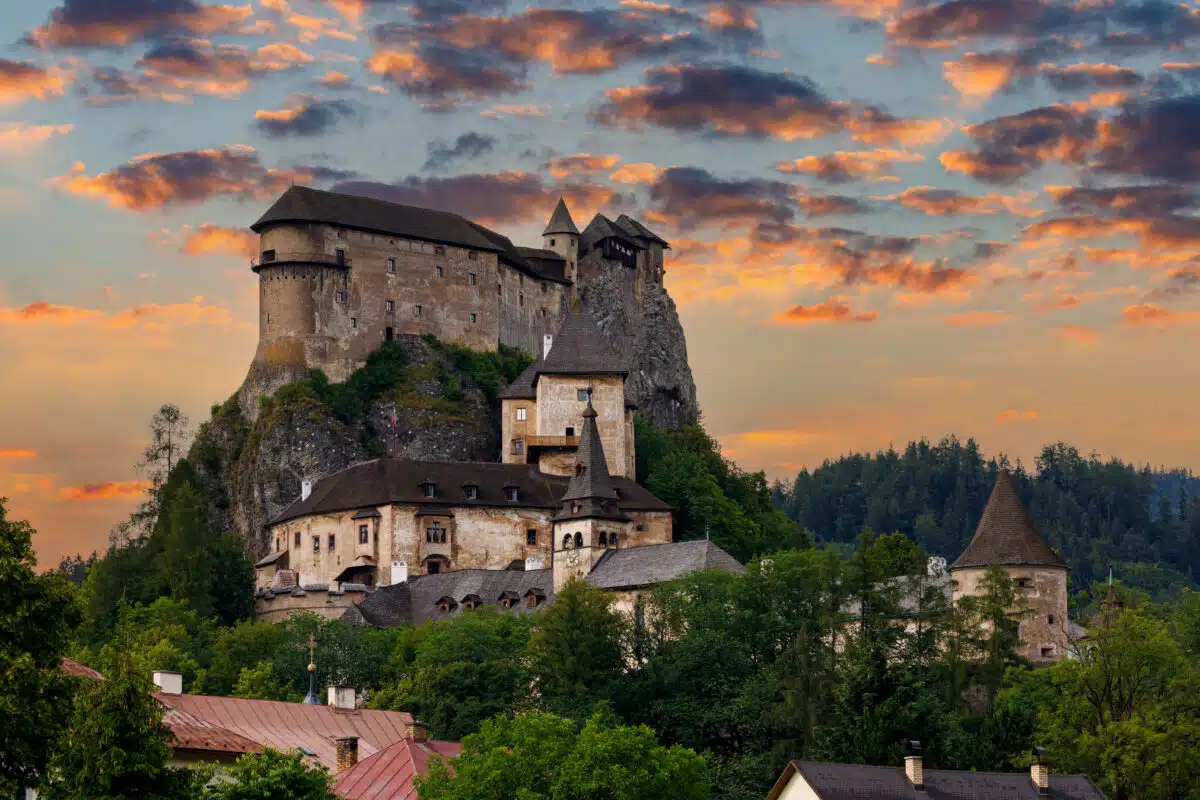
“Empire Day” by C. E. Stanley Thomas
I
Why should we keep our Empire Day?
For empires rise and fall away;
The phantom greatness of the past
Still warns, “The first shall be the last.”
Why should we boast our island home,
The flag that waves where-e’er we roam,
The seas and floods that bathe the strands
Of continents and mighty lands ?
Why should our hands across the sea
Stretch out in proudest ecstasy,
On Empire Day when hearts are glad,
While many lives around are sad ?
Ah, let men tell the noble tale,
And never may your memory fail
To rouse you to a fiery zeal
For distant kindred’s truest weal,
It is the day when spirits blend
Across the ocean, as we send
Our message to those Colonies
Of children born upon our knees.
II
Free is our Island of the Sea,
Free shall our brothers ever be,
Bearing the flag they love so well
Across each ocean’s mighty swell.
Far o’er the world proud Britons roam,
Remembering their native home;
Planting the seeds of future good,
Singing the songs of Brotherhood.
Sons of an Empire great and high,
Willing to suffer or to die;
Toiling beneath a tropic sun,
Knowing no rest till work is done.
Strong and alert and ever swift,
Heart, eyes, and hands they ever lift,
Ready for every duty’s call,
Till evening shadows gently fall.
Proud of the children of our race,
Britons their kindred ever trace,
Never forgetting those who went
Across the sea on victory bent.
One flesh, one blood, we claim them ours,
From one great stock the blossom flowers,
One family of liberty
Or on the land, or on the sea.
